





 Cover: SMGS Cambodia Tour. Click here for the article. This page: Student Spotlight - Lottie Lodge. Click here for the article.
Cover: SMGS Cambodia Tour. Click here for the article. This page: Student Spotlight - Lottie Lodge. Click here for the article.







 Cover: SMGS Cambodia Tour. Click here for the article. This page: Student Spotlight - Lottie Lodge. Click here for the article.
Cover: SMGS Cambodia Tour. Click here for the article. This page: Student Spotlight - Lottie Lodge. Click here for the article.

The type of motor vehicles we will be driving in the future, or not actually driving, continues to be quite a topical issue. Development brings innovations most of us could not have imagined when learning to drive all those years ago, just as our older students are doing now. The styling of cars continues to evolve too. In a conversation recently on this subject and on the types of vehicles on the market, someone quipped, ‘As long as it gets me from A to B, I don’t care about all the bells and whistles’.
I don’t know about you, but I am the complete opposite and have always been interested in motor vehicles and have valued the different features, advanced engineering, body and styling, as I interpret the ‘bells and whistles’ to be. To me, this is what results in a very different driving experience, though clearly we all have aspects of our lives where we value and appreciate different features in some areas but not in others—cars, art, music, sport, community, nature, literature, technology, and on it goes. What about education?
If we use the metaphor of a motor vehicle for education, do the bells and whistles really matter? Do they represent important value for my child and what difference do they make to my child’s future? Is merely getting from A to B sufficient by just ‘doing school’ and covering the basic classroom education, or
does the comprehensive enrichment of the whole journey matter? I’ve been observing this very keenly and have been heavily involved in this, in a career spanning thirty years in Kindergarten to Year 12 schools, as well as my own childhood experiences.
Of all the ‘bells and whistles’, it is difficult to identify which are more important than others, because every student is an individual and has different needs, interests, supports, personalities and unique experiences. However, I cannot go past the importance of the culture of a school authentically espousing, modelling and practising strong core values. I view these as the bedrock and foundation upon which everything else is built. Maybe this isn’t a bell or a whistle after all—rather an essential component.
Young people are at a stage in life where they are completely immersed in forming their own attitudes and beliefs that can carry forward for a lifetime. These become practices leading to habits over time, shaping behaviour. Of course, anyone can reframe all of these later in life, but many people don’t, because it is difficult to change what becomes ingrained in us. I cannot help but be curious how experiences in their schooling years could have helped many people form their outlook from a younger age, which could have altered their path in life to be
happier, more productive, to contribute more to society and to reach their potential. Whilst values start at home, schools play a vital role in shaping these.
Recently, in an assembly address to our Middle and Senior School students, I shared that I had changed schools on nine occasions, across seven different schools. My experiences in each school demonstrated that these schools were vastly different in culture, standards, attitudes and behaviour, which not only informed their students but actively led them in this way. I am glad I didn’t remain at some of these schools, as they had highly destructive and non-productive cultures and, to overcome this, a student had to go against the grain. I find it very sad that a young person has to do this to be able to achieve, to get involved in programs or just to do the right thing—but be made to feel inferior if they even try hard. Conversely, going with the grain can be healthy, productive, inviting, aspirational, inspirational and welcoming, when in an environment that supports this. Every child deserves this kind of start in life at home and in their school.
Just prior to Christmas Day, thirty-nine of our Middle/Senior School students and five staff members returned from nearly two weeks in Cambodia on a service-learning tour. I am told by all the staff members on tour that our students were impeccably behaved, with zero issues needing to be managed, during that entire period. More than that, they were polite, courteous and respectful of each other, and of the people with whom they interacted, including respecting the culture of the people of Cambodia and their beliefs and customs. Our students were surprised by how often they observed tourists who were not doing this, who seemingly cared little, and who disregarded customs and even the local laws. This importance wasn’t lost on our students who witnessed this disparity.
However, even more than this, I was informed that our students went further, by helping each other often, and particularly when the going got tough on extremely challenging full-day hikes up the mountains in the thick jungle. Rather than lose composure, many increased theirs by offering to carry the backpacks of those struggling, or offering to share food with those who had run out, or just encouraging each other to keep going. So much so, the ex-military mountain guide leading the group could not help but be impressed by our students as stand-outs compared to those in the many groups he had led previously, with him even posting this on social media. We should all be proud that these students came from Snowy Mountains Grammar School, representing themselves, their families, our school and our community so very well.
Such outcomes do not happen by accident. As I mentioned earlier, this starts at home and carries forward into school. At school, leadership, role modelling and constant narrative are
critical to this occurring regularly and consistently. Some get it wrong at times, as is the nature of individuals and developing as a person, but I have observed our students overwhelmingly getting it really right most of the time. Sometimes they even exceed what occurs broadly in our community—sometimes it is our teenagers leading the way.
I mention this because of the almost daily reporting in the media about youth crime and other antisocial issues in relation to our young people. I can attest that, in the main, the young people in our school give us hope for the future, not fear, if they continue to develop as they currently demonstrate. Our community will be in good hands, with many outstanding young citizens in our school, and with recent graduates already outshining me by a good margin compared to when I was their age. I credit this to the contributions of many people. Overall, our culture at SMGS is a grain that supports people doing the right thing, encouraging and assisting others, aspiring for personal best, showing empathy, respect, and much more. I thank our parents for identifying this in our culture and for believing in us and trusting us with their children, and knowing that we can add further value to their lives as they grow, aware that we are all investing in their future.
Perhaps these are the ‘bells and whistles’, or perhaps they are just the imperatives of a good school: the character values, beliefs, attitudes, diversity of opportunity, support systems, positive relationships, sparking and inspiring interests, caring, seeing the young person, and so much more. If these were absent, I consider it would be a rather clinical and superficial experience, and I am grateful to our staff who work so hard to perpetuate what is right in our school community. Whilst I refer to the Cambodia tour as one illustration of this, I could add dozens of other similar experiences each year.
I very much look forward to seeing our students grow further in 2024, with so much planned. I wish all our students an incredibly prosperous year of growth.
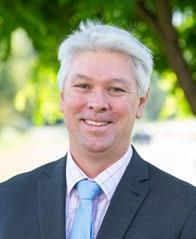 DR ANDREw BEll Principal [E] principal@smgs.nsw.edu.au
DR ANDREw BEll Principal [E] principal@smgs.nsw.edu.au
At Snowy Mountains Grammar School, we believe that it takes a village to raise the children and teenagers in our community.
The journey through the Higher School Certificate (HSC) is a critical time for our teenagers, requiring a collaborative effort from students, parents and educators to ensure the students’ success and wellbeing. Being a parent is a demanding role, and being an educator comes with its own unique challenges. However, when educators and parents unite, the impact on our students’ lives is immeasurable. This partnership is a cornerstone of our approach at Snowy Mountains Grammar School.
Recently, we held a parent information session to share strategies and insights on supporting your teenage children through the HSC experience. Our dedicated staff are committed to working closely with you, as we recognise that this partnership is crucial to our students’ success, not just during the HSC but their entire schooling journey.
The Challenges of Year 11 and 12
Adolescence is a time of notable change, with teenagers seeking more independence and embarking on a journey of self-discovery. Despite these natural developments, it is important to remember that our Year 11 and 12 students are still at a vital phase of brain development. They need guidance from both parents and teachers to navigate this period safely and successfully. As joint mentors, we aim to provide them with the right balance of freedom to take calculated risks while ensuring they have a safety net of boundaries and support.
The challenges facing our young people during these final years of schooling are multifaceted. One often overlooked aspect is the impact of romantic relationships. While having a serious boyfriend or girlfriend is a normal part of teenage life, break-ups can be particularly tough during this critical time. Encouraging our students to engage with their community through social outings, volunteering or family activities can provide them with a support network that helps them bounce back from personal setbacks.
Another risk to our students’ success is the temptation to overcommit to part-time work. While gaining work experience is valuable, students must maintain a balance. They should be focusing on their studies, aiming for over three hours
of homework or study per night, five days a week. This is a significant workload, and ensuring they have time to relax and recharge is essential. Physical activity and time spent outdoors are also important for their mental and physical health.
In today’s digital age, excessive screen time is a growing concern. It is not uncommon to witness students struggling to stay awake in class owing to late-night scrolling on social media or binge-watching shows. Parents play a vital role in monitoring and regulating their children’s internet usage to prevent it from affecting their mental health and academic performance.
Learning to drive is a significant milestone for many teenagers. It is an excellent opportunity for parents to spend quality time with their children, discussing their lives and offering guidance. However, caution must be exercised, particularly when it comes to allowing your child to be a passenger in a car driven by a newly licensed P-plate driver.
As our teenagers navigate the complexities of adolescence, social gatherings and parties become more frequent. It is important to be aware that these events may expose your child to underage drinking and drug use. To mitigate these risks, we encourage parents to form a united front. Connecting with other parents and ensuring adult supervision at parties can create a safer environment for our young people. Additionally, it’s wise to monitor your child’s assessment schedule and set boundaries around attending parties close to critical academic dates.
To support your child through this journey, consider the following strategies:
• Foster connections—regular family dinners and outdoor activities such as camping can strengthen your bond.
• Acknowledge their feelings—understand their concerns and show affection. A simple hug can make an enormous difference.
• Respect their opinions—listen to their views and engage in open conversations.
• Encourage problem-solving—guide them to find solutions to their challenges, promoting independence.
• Involve them in family decisions—give them a sense of responsibility by involving them in household tasks and decisions.
• Celebrate their achievements —acknowledge their successes, no matter how small.



• Know their social circle—get to know their friends and parents to build a supportive community.
• Promote healthy habits—encourage balanced nutrition, regular exercise and sufficient sleep.
• Maintain communication—keep the lines of communication open while respecting their need for privacy.
• Encourage active participation —engage in sports or games to promote physical activity.
• Share positive moments—discuss the highlights of each other’s day to foster a positive atmosphere.
• Support their independence—teaching them to drive can be a valuable bonding and learning experience.
• Explore their interests—show interest in their hobbies and passions to demonstrate your support.
• Plan tech-free getaways—spend time in nature where internet access is limited to encourage disconnection from digital distractions.
• Stay calm —approach challenges with a calm and composed demeanour to provide a stable support system.
Finally, if you sense something is amiss with your child, please trust your instinct as a parent. Be on the lookout for red flags, such as changes in sleeping or eating habits or signs of overwhelming stress or anxiety. If you notice any concerning changes, please reach out to our staff. We are here to support you and your child, and we will also contact you if we observe anything of concern.
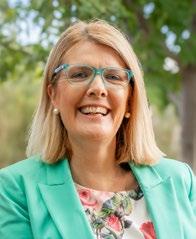 DANIEllE GoUCHER Deputy Principal [E] danielle.goucher@smgs.nsw.edu.au
DANIEllE GoUCHER Deputy Principal [E] danielle.goucher@smgs.nsw.edu.au

At the heart of the Snowy Mountains Grammar School lies a tradition that goes beyond the classroom—a journey of discovery, adventure and growth. This journey, our annual adventure camps, is not just an escape into the wilderness, it’s a cornerstone of our school ethos: Challenge, Belong, Explore.
I want to congratulate all of our students who attended camp in Week 2. Our camp week gives our students a chance to connect in a new environment to other students and staff. It also allows them to push limits and face challenges. Perhaps it is not just the activities they partake in, but the little moments of them picking themselves up and having another go, which is more important.
Our Year 7 adventurers took to the rivers and cliffs of Jindabyne with a focus on socialisation, integration and experiential living, building skills which they will no doubt utilise in outdoor programs over the coming years.
The Year 8 camp saw some challenging hikes through rugged terrain in the Geehi area, followed by a mountain bike experience which tested their limits. With their introduction to expedition camping, the focus was on building self-efficacy as well as teamwork.
Year 9 explored the far south coast, with a walk along some of Australia’s best beaches and the development of surfing skills in Pambula. Students took more of an active role in the set-up of the camp area and activities, and continued to develop their camping and personal skills along the way.
Finally, our Year 10s headed down the Snowy River, navigating white-water rapids and the remote wilderness in their final camp-style adventure. This was an opportunity for students to experience a full expedition program, build on their teamwork and challenge their own resilience.
It is through these moments on camp that students are able to look at what is possible. Additionally, camp is the starting point for our Duke of Edinburgh’s Award program, which continues to go from strength to strength and to provide more opportunities for our students to explore life outside of the classroom.
My thanks to our providers, Action Learning Initiatives, as well as the incredible staff at Snowy Mountains Grammar School who always go above and beyond to give their time to worthwhile educational experiences. I also would like to acknowledge the work of our Sports Academies and Outdoor Education Co-ordinator, Mr Jay Williams, for his efforts.
For student reflections from camp, click here for the article Camp Tales: Exploring Nature, Building Bonds and Creating Memories
 TIM BlAND Head of Middle & Senior School Co-curricular Co-ordinator [E] tim.bland@smgs.nsw.edu.au
TIM BlAND Head of Middle & Senior School Co-curricular Co-ordinator [E] tim.bland@smgs.nsw.edu.au

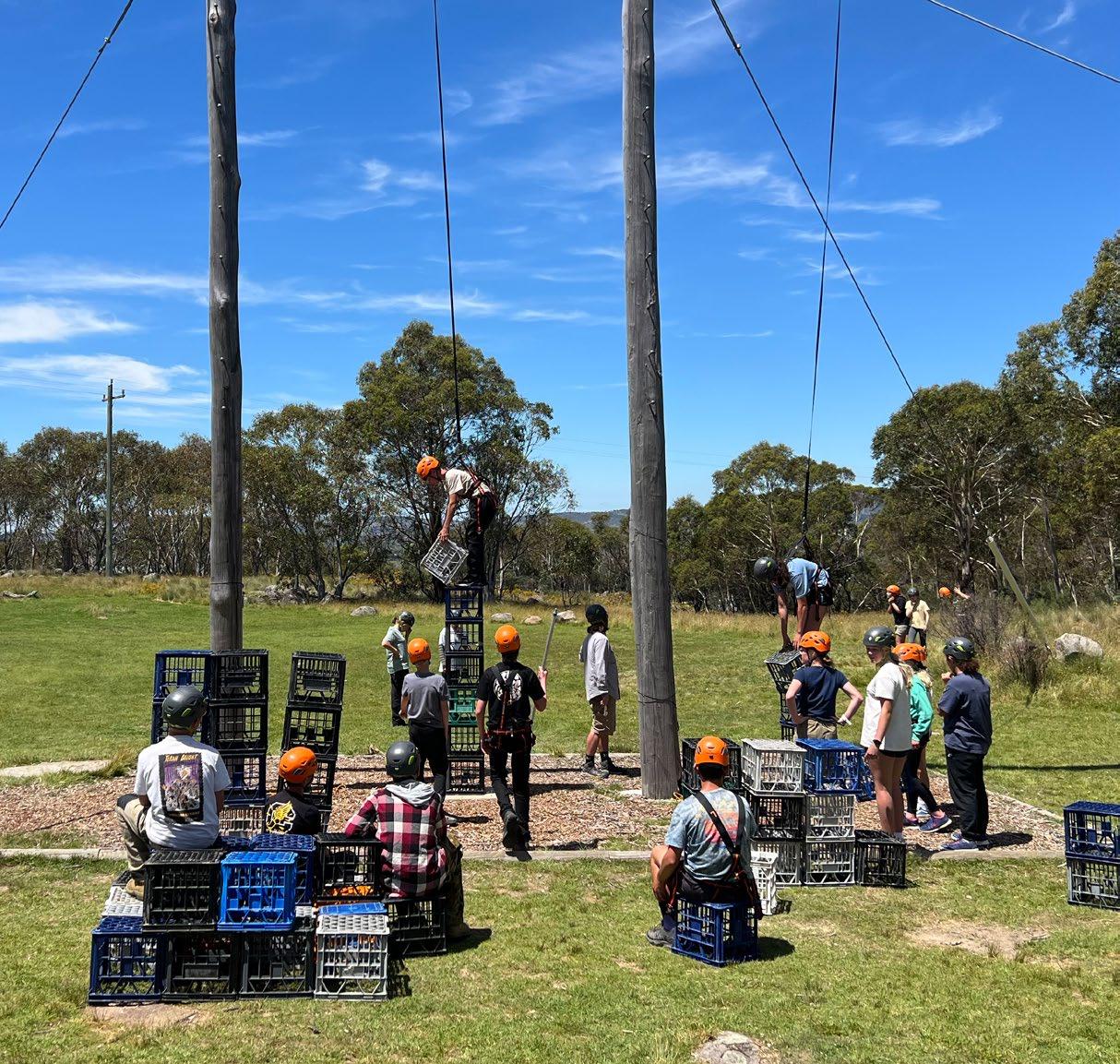
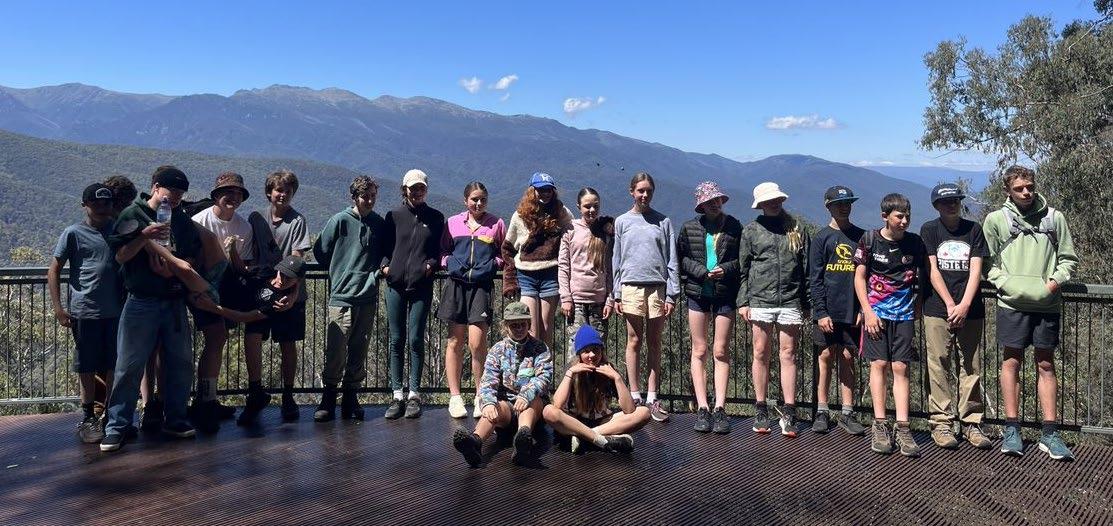

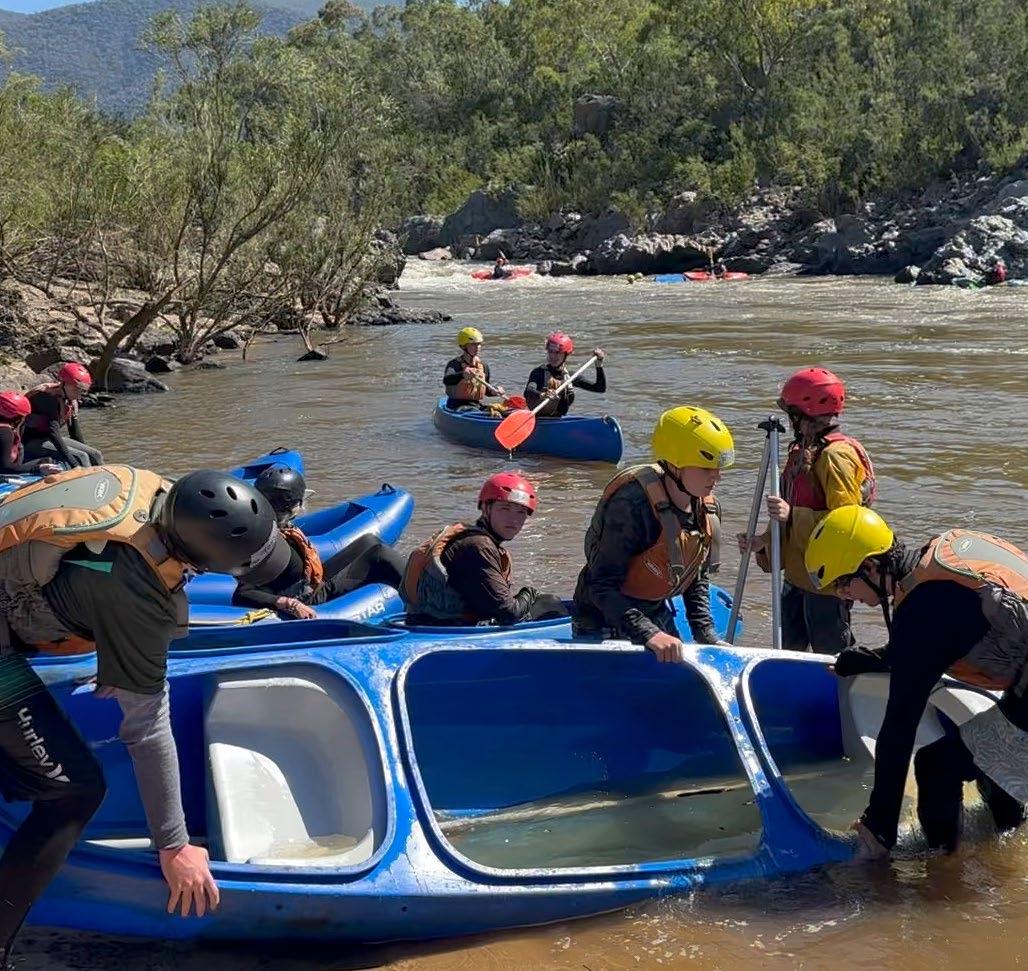
The skill of reading is an essential requirement for navigating through life. As a child learns to read, their world opens up to new ideas, challenges, stories and learning opportunities. Our teachers are committed to nurturing this development in our Junior School students, K–6. Encouraging the development of reading stamina for Years 3 to 6 is as important as teaching early reading strategies to K–2 students.
Books are used in the classroom across all areas of the curriculum. Students access both digital and hard copy books in their research tasks and when reading for enjoyment. This serves to teach specific topics, to broaden social and moral understanding and develop cultural awareness. We currently have the library’s Junior School shelves within our classrooms and our students have daily access to a vast range of books. They spend time each day browsing and selecting a book for reading during class or to borrow to take home.
As teachers, we witness the growth of a student’s vocabulary as their reading skill develops. This flows over into their oral language and their written text. Experimenting with new vocabulary in writing develops comprehension and elevates the quality of a student’s writing piece. This type of development positively supports growth in all other subject areas. Therefore, we can’t stress enough how important it is to read to your child or to encourage their own reading.
I hear some parents say their child does not enjoy reading. The key to this is to find an area of interest. If your child does not enjoy fiction, immerse them in non-fiction books on nature, animals, sport, cars, comics or wherever their specific interest lies. It does not matter what genre they read. Model a love of reading and your child will be encouraged to do the same.
The Junior School has re-introduced ‘Read Aloud Wednesday’ from 8.45 to 9.00 am, when K–6 relax in Eat Street before class starts, with Year 4–6 students reading to or with K–3 students. This is a way to develop peer relationships and model the importance of reading aloud. The staff have commented on what a lovely vibe there is as they walk around, observing and listening to the reading. We invite grandparents or parents to join us for Read Aloud Wednesday.
The Student Representative Committee was in place from 2019, but ceased for three years during COVID. We have recommenced this program in alignment with the Secondary SRC. In Week 1, Years 4/5/6 students were given an application form to apply for a position, with roles for two boys and two girls per class. Students had four days to complete their application, in which they needed to highlight their strengths and provide ideas for Junior School improvements, and what would be needed to do this. Applicants also had to think about being collaborative and co-operative, as they were going to be working in a group of twelve students from Years 4, 5 and 6. If students were not selected this year, they are encouraged to apply next year and can apply every year until Year 12. There were many students who applied for a position and we will therefore aim to select a fresh group next year to allow other students to have the opportunity.
Our Junior School House Leaders were announced at our first assembly. They were provided with their first role at the Junior School Swimming Carnival, where they enthusiastically worked with their house members, rehearsing chants with great gusto. Our House Leaders play an important role, as they must motivate and encourage all students to have a go!
Parent–teacher interviews were a valuable opportunity for parents to share insights about their child and, equally, for teachers to provide observations of each student’s approach to learning and their social interactions with peers. It makes such a difference to share the journey through school.
Thank you to those who have donated to our Junior School Service-Learning opportunity, Light Up Timor. So far, our community has raised over $3,000, which will purchase 94 solar light kits. The order will be placed later in the term when fundraising closes. Our students will build the lights together and we will write letters to the children of Timor who will receive the lights. We are doing our part to combat energy poverty in Timor.
We look forward to a busy and productive term!
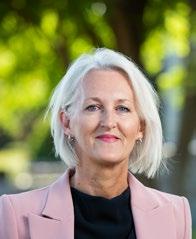 HEIDI SHvETSoFF Head of Junior School [E] heidi.shvetsoff@smgs.nsw.edu.au
HEIDI SHvETSoFF Head of Junior School [E] heidi.shvetsoff@smgs.nsw.edu.au
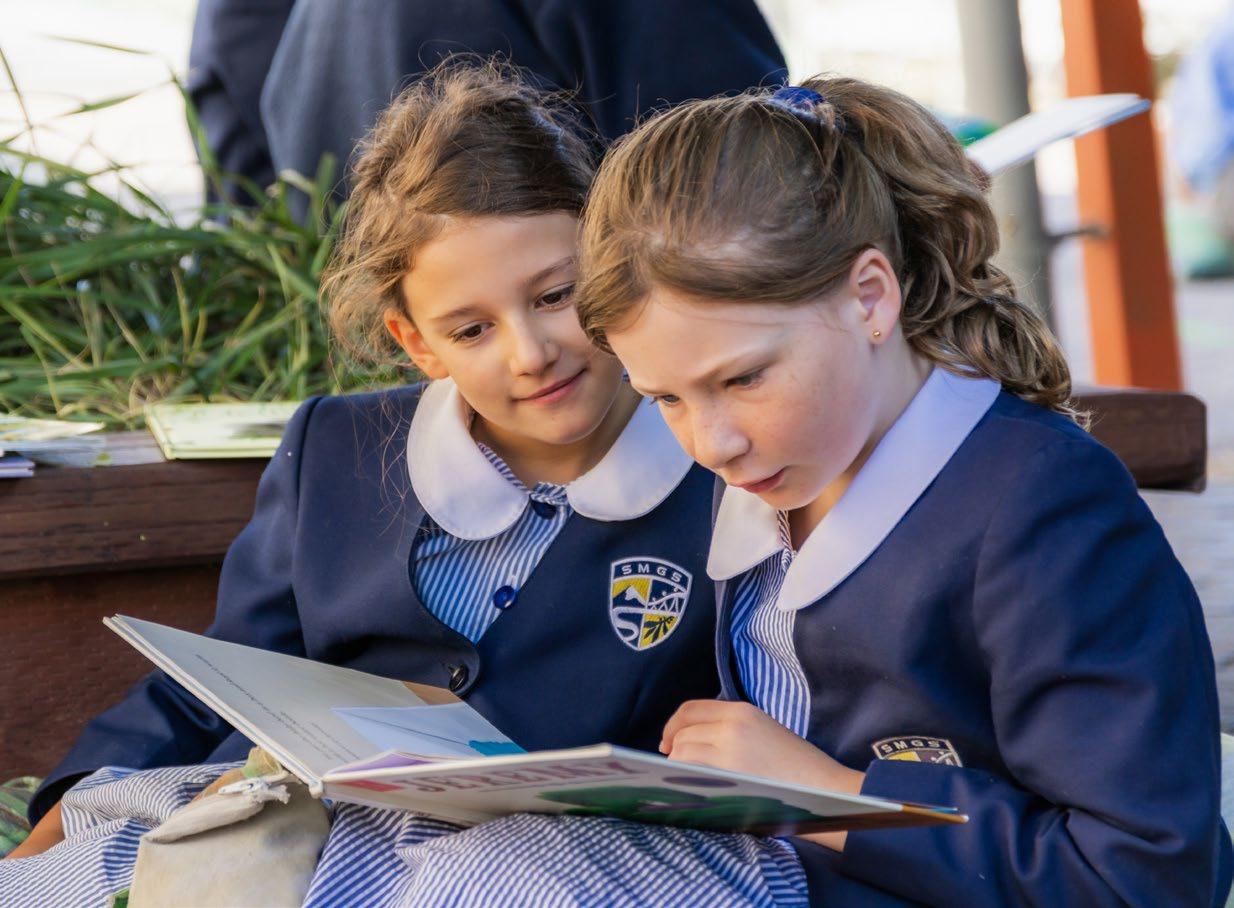
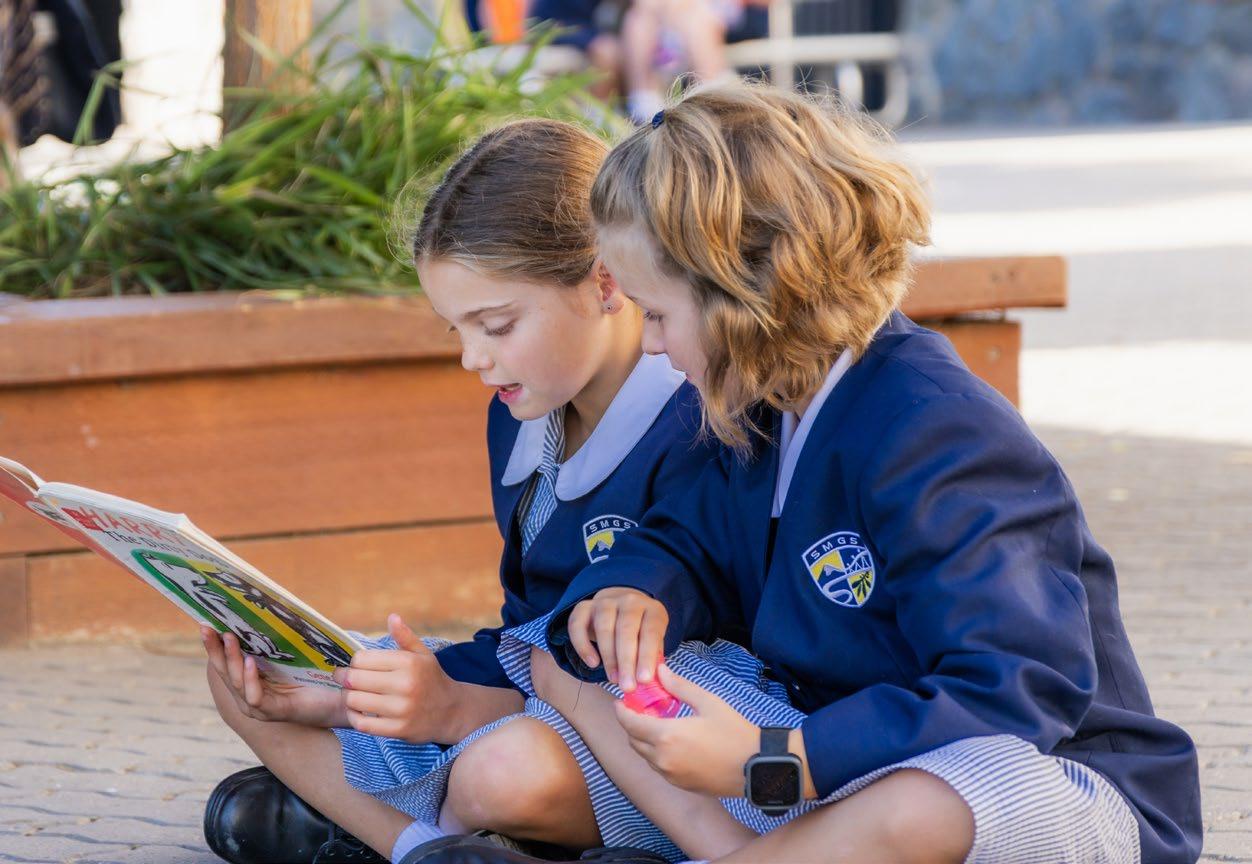

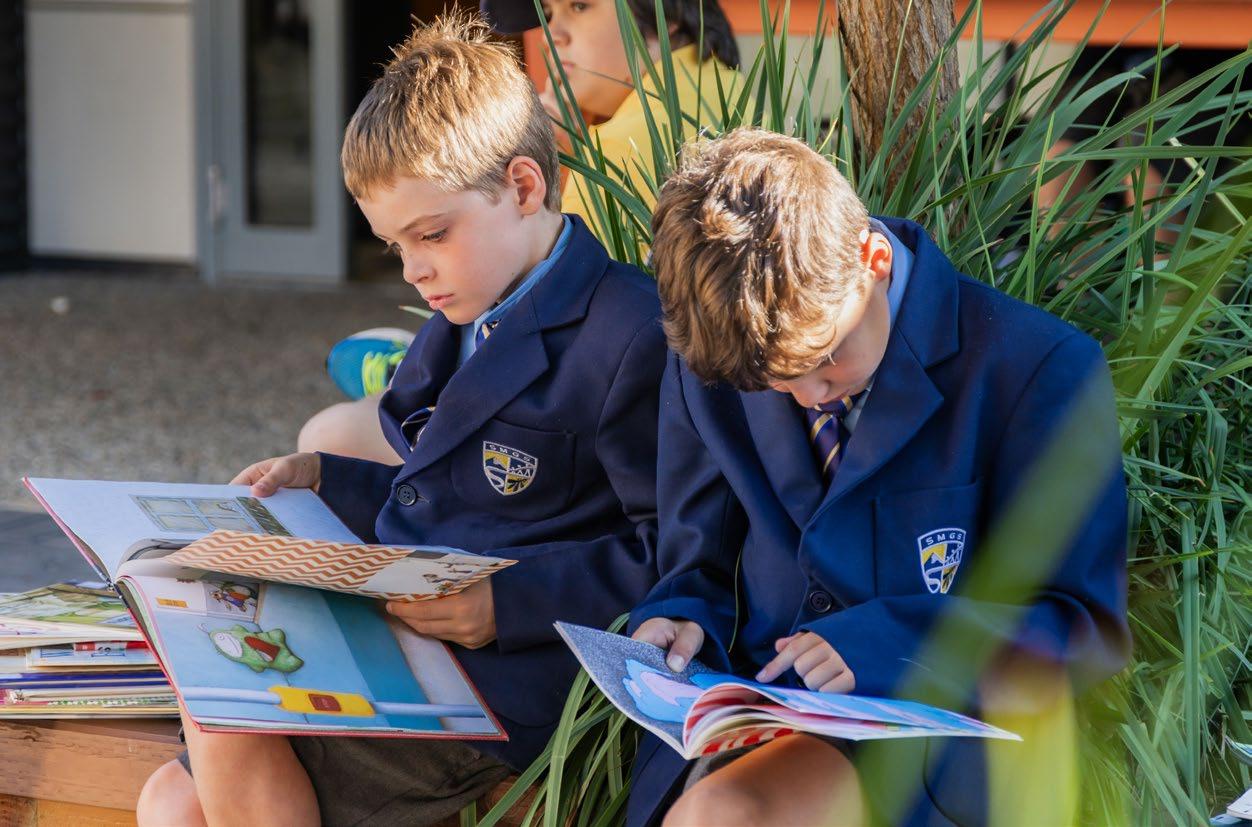

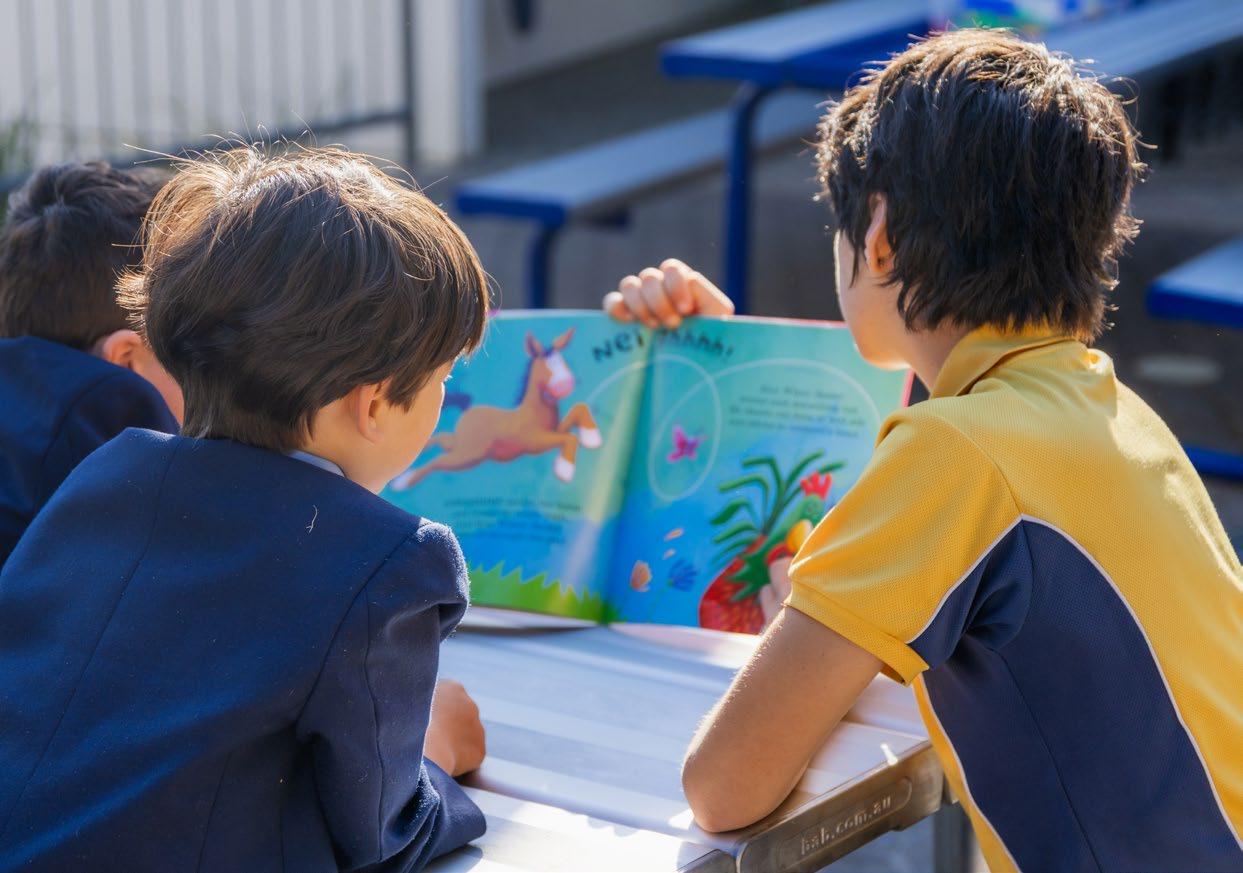


In the dynamic realm of education, where schedules are often hectic and stress levels can soar, it’s vital for both students and parents to prioritise healthy habits. Establishing consistent routines can be instrumental in fostering a balanced and thriving educational experience that promotes both academic success and emotional wellbeing.
Routines offer structure and predictability, essential for reducing anxiety and providing stability. Regular study times, meal schedules, exercise routines and relaxation periods can help students to manage time effectively and maintain a healthy balance between their academic responsibilities and personal lives. Similarly, parents can benefit from routines that support their children’s academic pursuits while nurturing their emotional needs.
Consistent study habits are key to academic success. Encourage students to set aside specific times each day for homework, studying and review sessions. Creating a designated study space free from distractions can further enhance concentration and productivity.
In addition to academic pursuits, prioritising emotional wellbeing is crucial. Encourage students to incorporate selfcare activities into their daily routines, such as exercise, meditation, hobbies or spending time with loved ones. Parents play a vital role in modelling self-care behaviours and providing support for their children’s emotional needs.
Effective routines require collaboration between the home and school environments. Parents and educators can work together to establish consistent expectations and reinforce positive habits. Regular communication between teachers and parents ensures students receive the necessary support to thrive academically and emotionally.
By prioritising healthy habits and routines, students and parents can create an environment that fosters academic success and emotional wellbeing. Through consistency, collaboration and a commitment to self-care, we can empower our students to navigate the challenges of academic life with confidence and resilience.

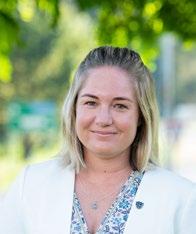
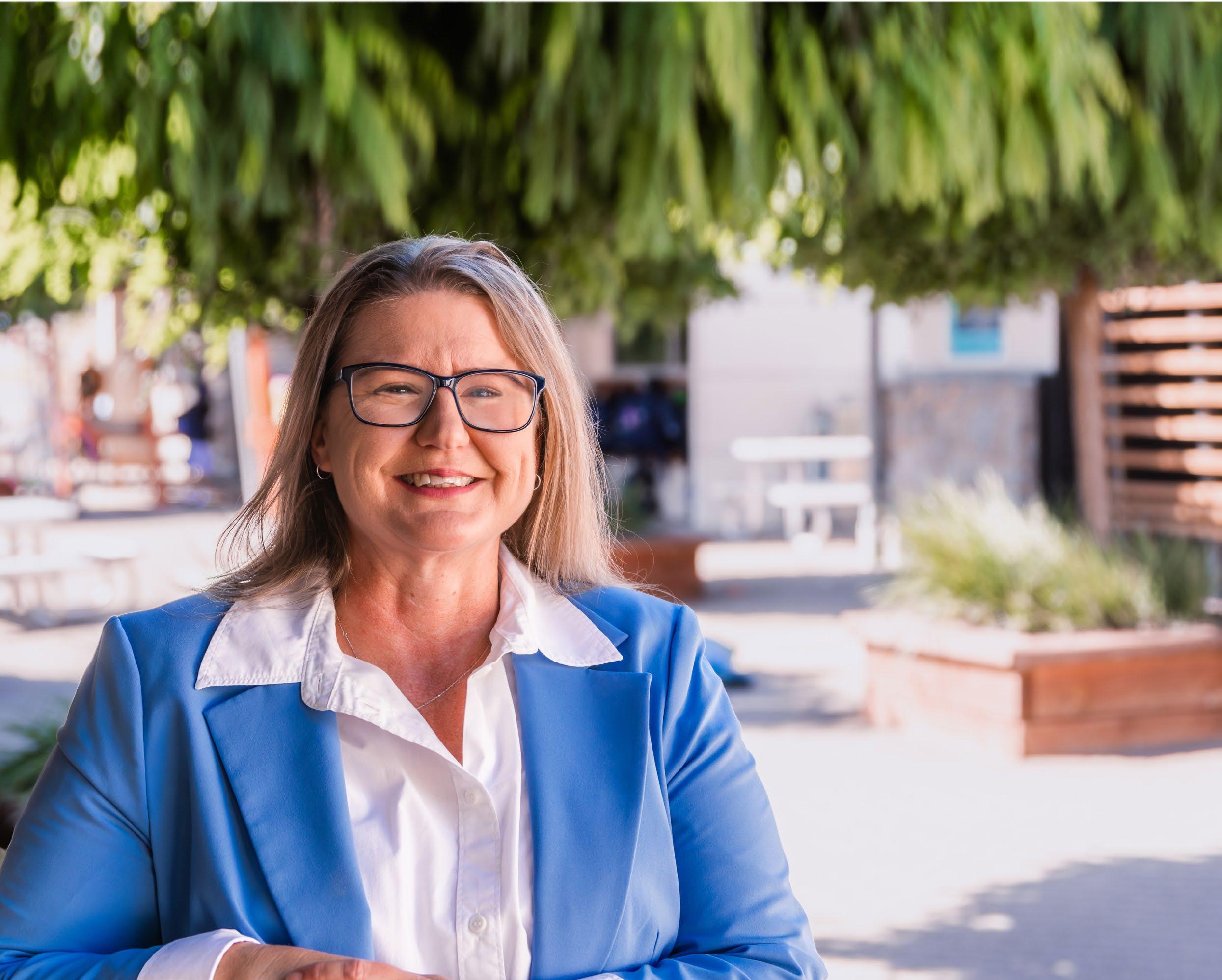
We are thrilled to introduce Mrs Melissa Kenney, our new Head of Boarding, who brings a wealth of experience and passion to our boarding community. With over thirteen years dedicated to operations and facility management within boarding school environments, including five years as a senior boarding supervisor overseeing male and female residential care, Mrs Kenney’s expertise and commitment to student growth make her a valuable addition to our team.
Q: what drives your passion for boarding work?
A: What I love most about working in boarding is witnessing the remarkable growth of students. It’s incredibly rewarding to see them develop resilience, a sense of responsibility and leadership skills throughout their time in boarding. Being a part of their journey and nurturing their true selves is truly fulfilling.
Q: w hat excites you about joining Snowy Mountains Grammar Boarding School?
A: I’m particularly looking forward to embracing the new community at Snowy Mountains Grammar School and
embarking on a journey of fulfilment and growth together. The prospect of contributing to the school’s vibrant boarding environment is immensely exciting.
Q: what initiatives and programs do you plan to introduce to enrich the boarding experience?
A: At Snowy Mountains Grammar Boarding School, I aim to introduce initiatives and programs that prioritise student wellbeing, foster community cohesion and provide ample opportunities for personal growth and skill development. Through wellness activities, community-building exercises or leadership development programs, I aim to enhance the overall boarding experience and create a supportive and enriching environment for all students.
Welcome, Melissa!
In December 2023, thirty-nine students and five staff from Snowy Mountains Grammar School embarked upon the School’s first overseas service-learning adventure in the beautiful country of Cambodia, a nation still recovering from the devastating social, economic and political effects of war and the remnants of the genocide carried out by the Khmer Rouge regime of the 1970s. The unique and diverse geographical, cultural and historical facets of the country provided a plethora of profoundly life-changing learning experiences for the students and formed the foundation for the three key components of the tour.
Vihea Sou Primary School is an impoverished school nestled in the rural outskirts of Phnom Penh. The school operates two school sessions in the day because the community struggles to provide the teachers, buildings and resources to meet the critical demand for education in the local area. The students from SMGS were besieged each day with crowds of enthusiastic children and parents, eager to have contact with people from the West and to learn English. The classrooms housed forty-five students in each learning space, all of which lacked glass in the window frames, carpet on the floors and ceiling fans to cool the learners down. The complete lack of technology in the classrooms and the rudimentary teaching methods employed by the teachers, with little to no resources to draw upon, was an astonishing and eye-opening experience for the tour participants. While at the school, the SMGS students worked with determination and perseverance in extreme heat and humidity to pave a very large outdoor area for the children to play on, painted six beautiful murals to brighten the external walls of the classrooms, taught English and Physical Education lessons to a wide variety of year levels, and presented a substantial amount of donated stationery supplies and sports equipment to enhance the learning opportunities for the school community. The SMGS students came away deeply humbled by their interactions with the Cambodian students and their valuable experiences at Vihea Sou Primary School, and with an enormous sense of gratitude for the facilities and resources that they have access to, both at SMGS and in their family homes.
Adventure trekking deep in the jungles of the Cardamom Mountains was the second key element of the Cambodia tour. This highly ambitious and adventurous four-day journey encompassed the summiting of Mount Aural, the highest mountain in Cambodia, while sleeping in hammocks and eating local cuisine. At 1813 metres above sea level, the sheer and precipitous vertical ascent required participants to wade through rice paddies and streams, use machetes to cut through thick jungle vegetation, utilise ropes to scale boulders and the steepest sections, all while avoiding the prolific wildlife along the way. The exploration of a cargo plane wreck from the
1970s, interactions with Buddhist monks, learning about illegal logging and poaching from the local Cambodians, and the spectacular scenery from the summit, profoundly enhanced the students’ appreciation for the culture, environment and history of Cambodia. The trek leader was indeed impressed by the resilience, determination, positivity and perseverance of the student group in not only encouraging and supporting each other during the challenging stages of the climb, but also by their enthusiasm to immerse themselves in the culture and embrace every opportunity presented.
The third component of the Cambodia tour was one of cultural immersion, where the tour group learnt about the rich cultural history and the long-term impact that two decades of war, isolation and genocide by Pol Pot and the Khmer Rouge regime of the 1970s have had on the Cambodian people. The group visited temples, experienced a Buddhist meditation and a blessing at the Wat Langka temple, which deepened an appreciation of the Buddhist faith and an understanding of the amicable and harmonious demeanour that characterises the Cambodian people. As a result of a visit to both the S-21 Genocide Museum and Choeung Ek Killing Fields, while both very confronting and emotionally distressing experiences, the students developed a heartfelt empathy for the atrocities committed and an understanding of the social, emotional, economic and political challenges that the nation continues to experience. The cultural immersion component of the tour concluded with an extensive exploration of the Angkor Wat temple complex in Siem Reap, the largest religious structure in the world, built during the 12th century. The grandeur and sophistication of the architecture was astonishing, with students particularly enjoying the sites where Hollywood movies such as Tomb Raider and The Jungle Book were filmed.
The Cambodia tour was truly a life-changing experience for both the students and staff alike. The camaraderie amongst the group, combined with the receptivity to embrace the culture and every experience embarked upon, was impressive. The students certainly epitomised the Snowy Mountains Grammar School values of Courage, Authenticity, Respect and Empathy in every sense of the word.
For student reflections from the tour, click here for the article SMGS Cambodia Tour: Student Reflections

MElISSA BEll Head of Faculty – Educational Support and Enrichment Duke of Edinburgh’s Award Co-ordinator [E] melissa.bell@smgs.nsw.edu.au
The trip to Cambodia was an eye-opening one, to say the least. To be completely immersed in a culture that feels opposite to yours is not only confronting, but also an absolutely beautiful experience. For me, working with the school kids was a massive highlight—having fun with the kids by dancing, singing, drawing and bouncing their first ever handball. Their smiles couldn’t get any bigger. But at the same time, there was seriousness to it as well. Kids no older than 10 would smile at me with rotten teeth. 40+ kids crammed into a tiny classroom without windows. I was always aware of the school’s conditions, but could only truly empathise and understand once I’d seen it first-hand. It made us appreciate what we had. And even though some of us have our own issues and problems, being there sort of put those into perspective and made us stop and think about the positives in our lives, rather than dwell on the negatives. I guess that it made the dancing on the last day just that little bit more special. (Emily
Willsmer)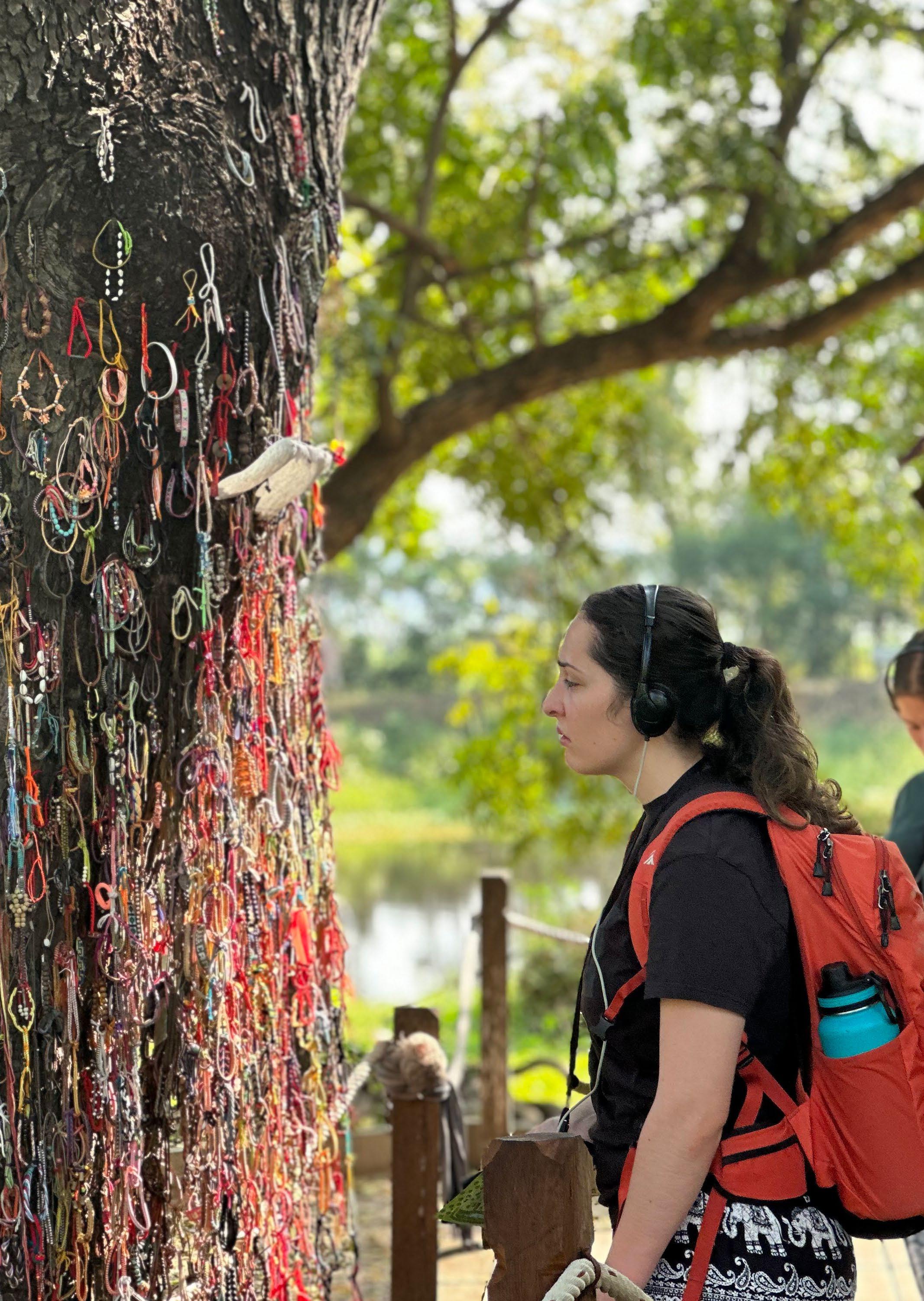
When being asked to write about the 2023 Cambodia tour, I knew that the physically agonising climb to the summit of Mount Aural was my most memorable moment. The determination and grit our group endured was beyond reason. From the early morning wake-ups to beat the foreign heat, to the ever-inclining hills, we fought through the Cambodian sun. My most memorable moments through this segment of the trip were the encouragement through both segments of the summit climb and the kindness of the locals at base camps offering us passionfruit to rejuvenate our bodies. The constant encouragement throughout the group was what really kept us going. Positive words could be heard from both the front and the back of the group. It was a beautiful atmosphere to be included in, despite the pain everyone was in at the time. Getting to see an environment and culture so different to my own was something I will never forget. (Mia Godward)


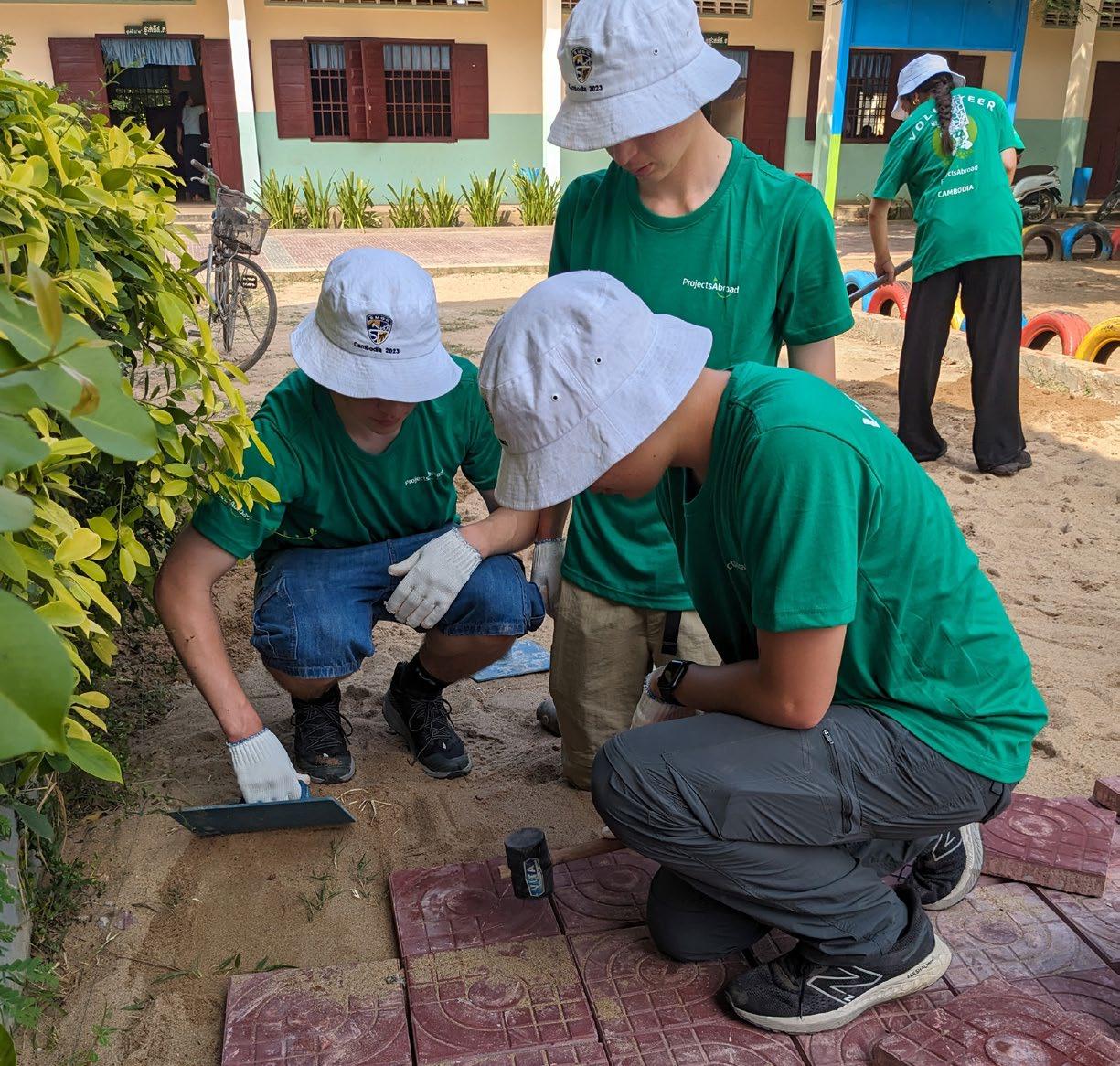
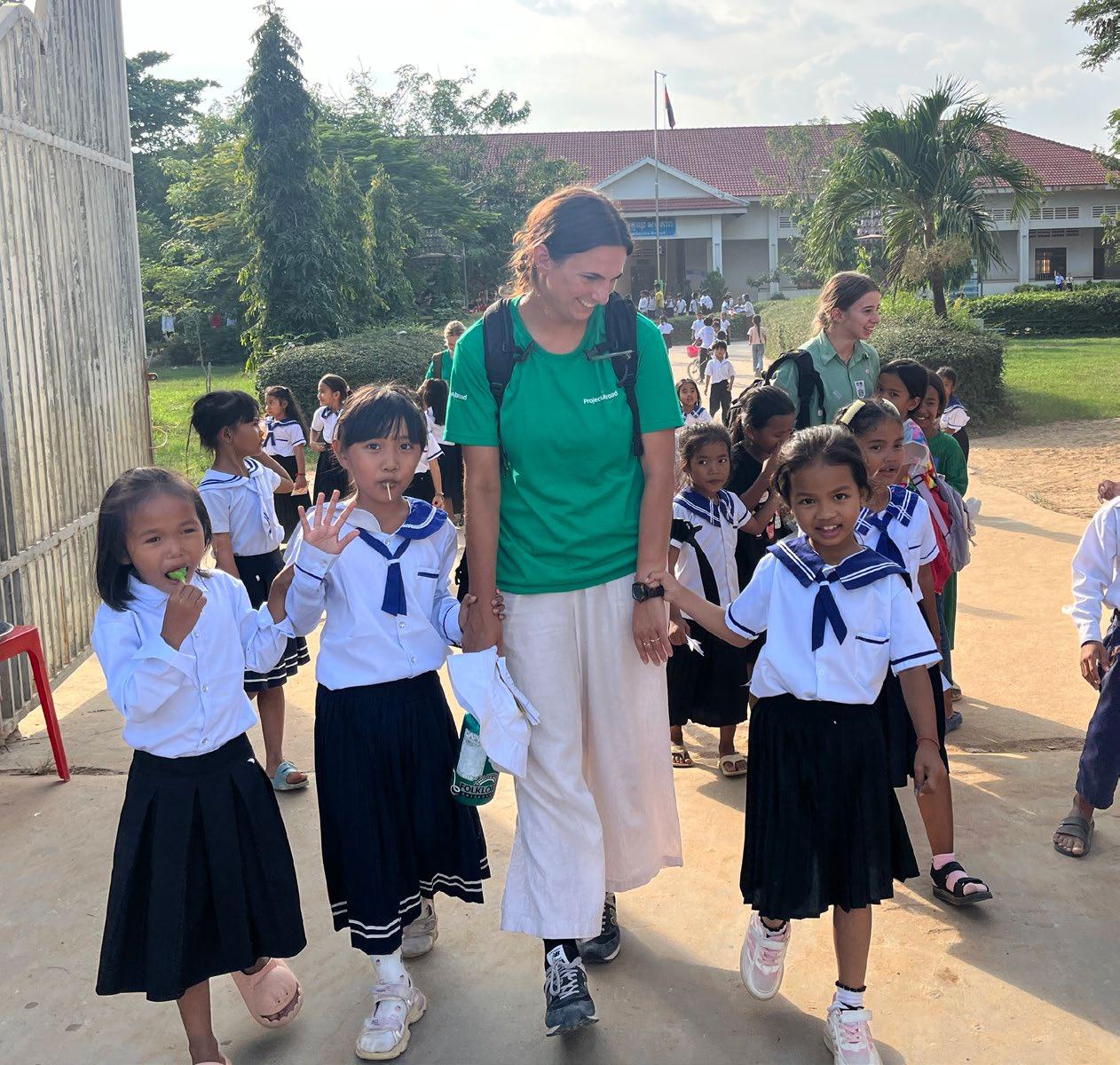
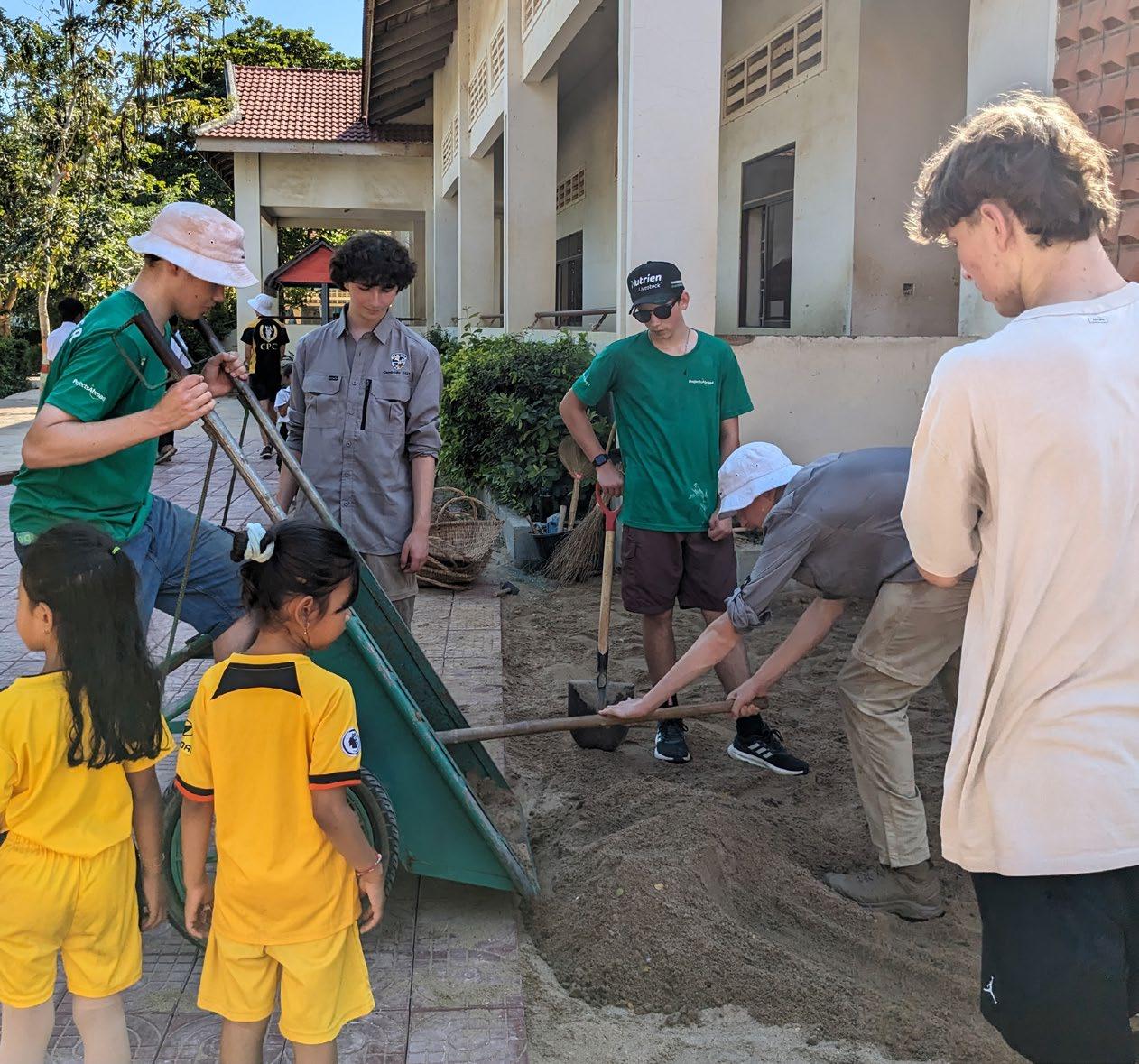
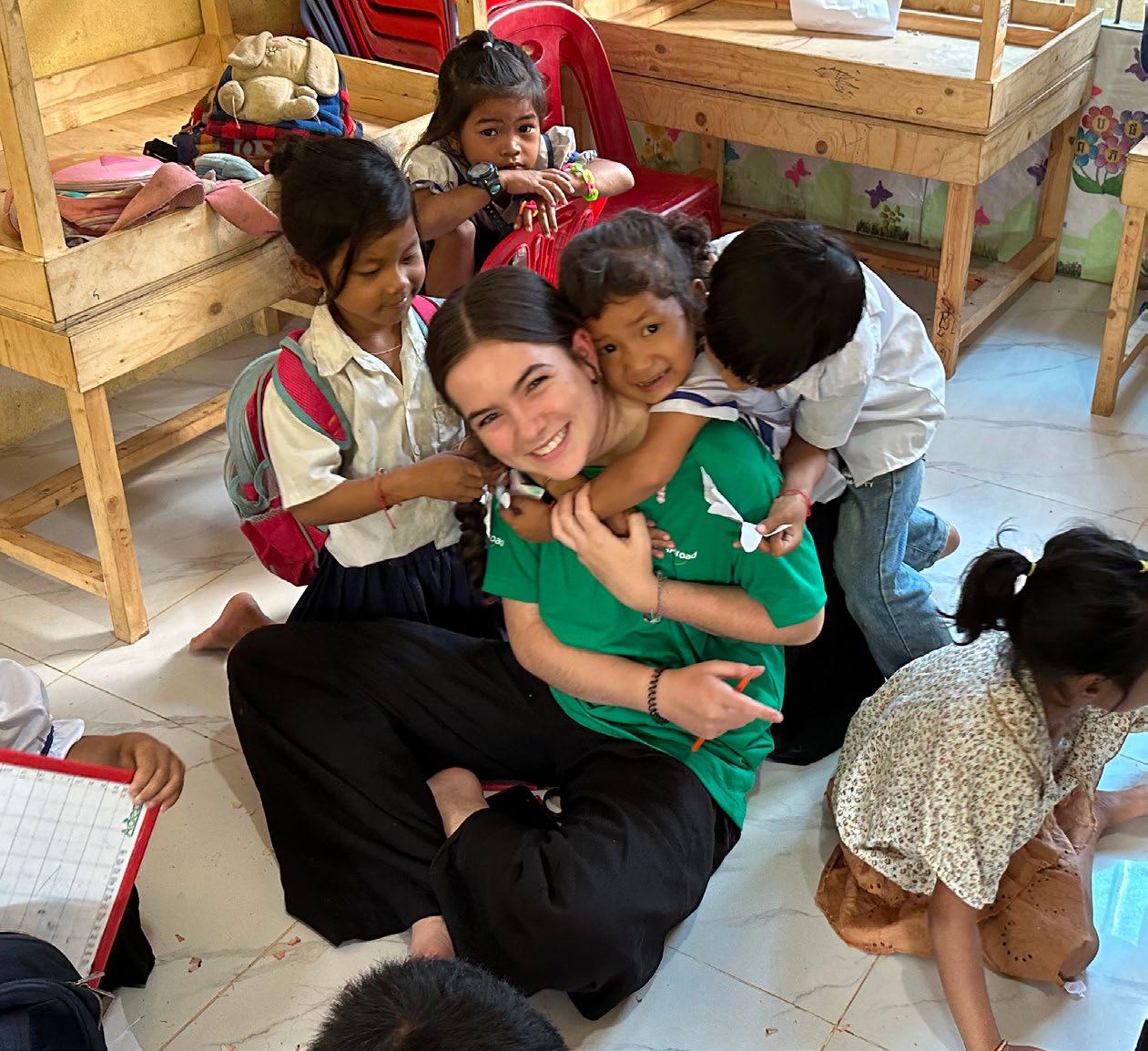
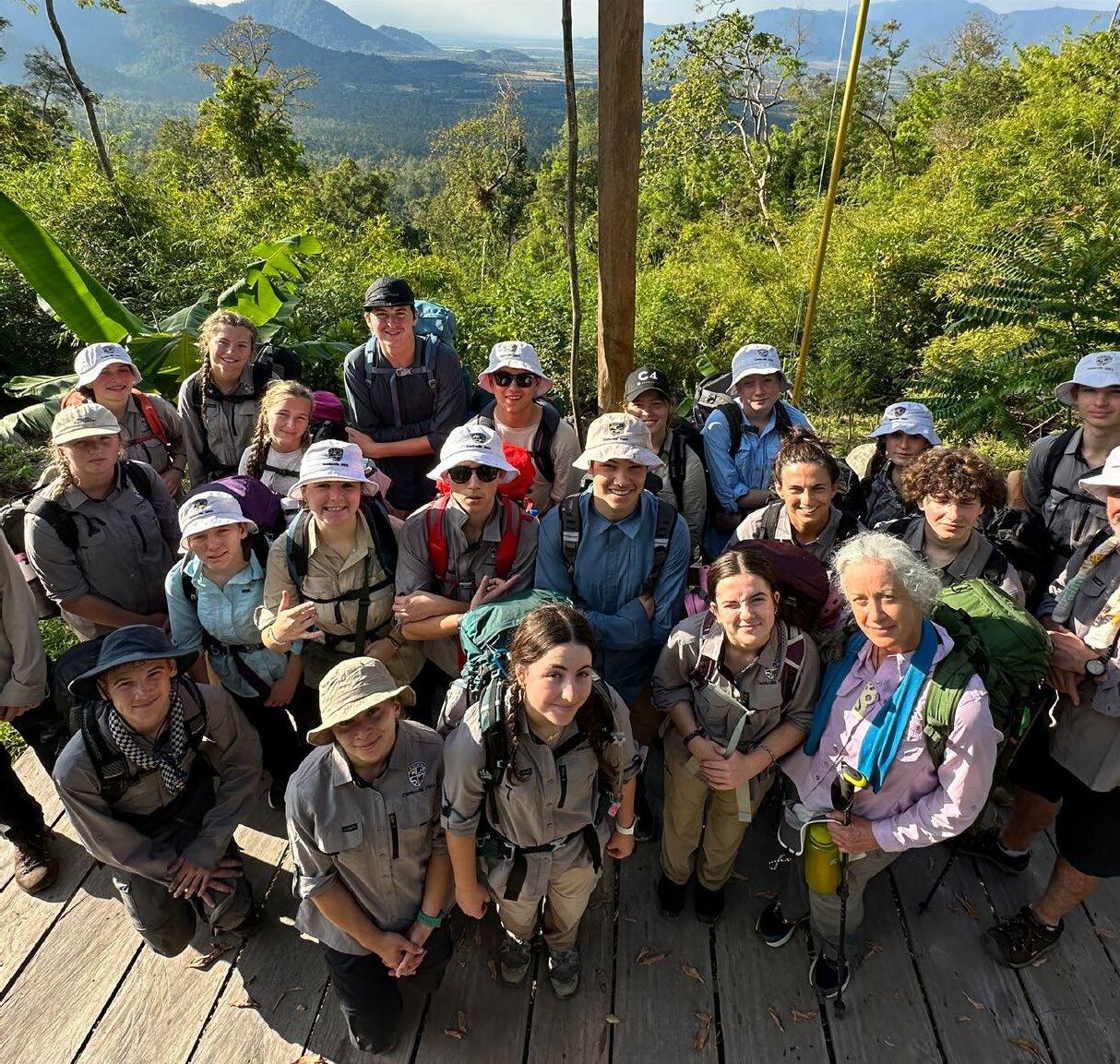
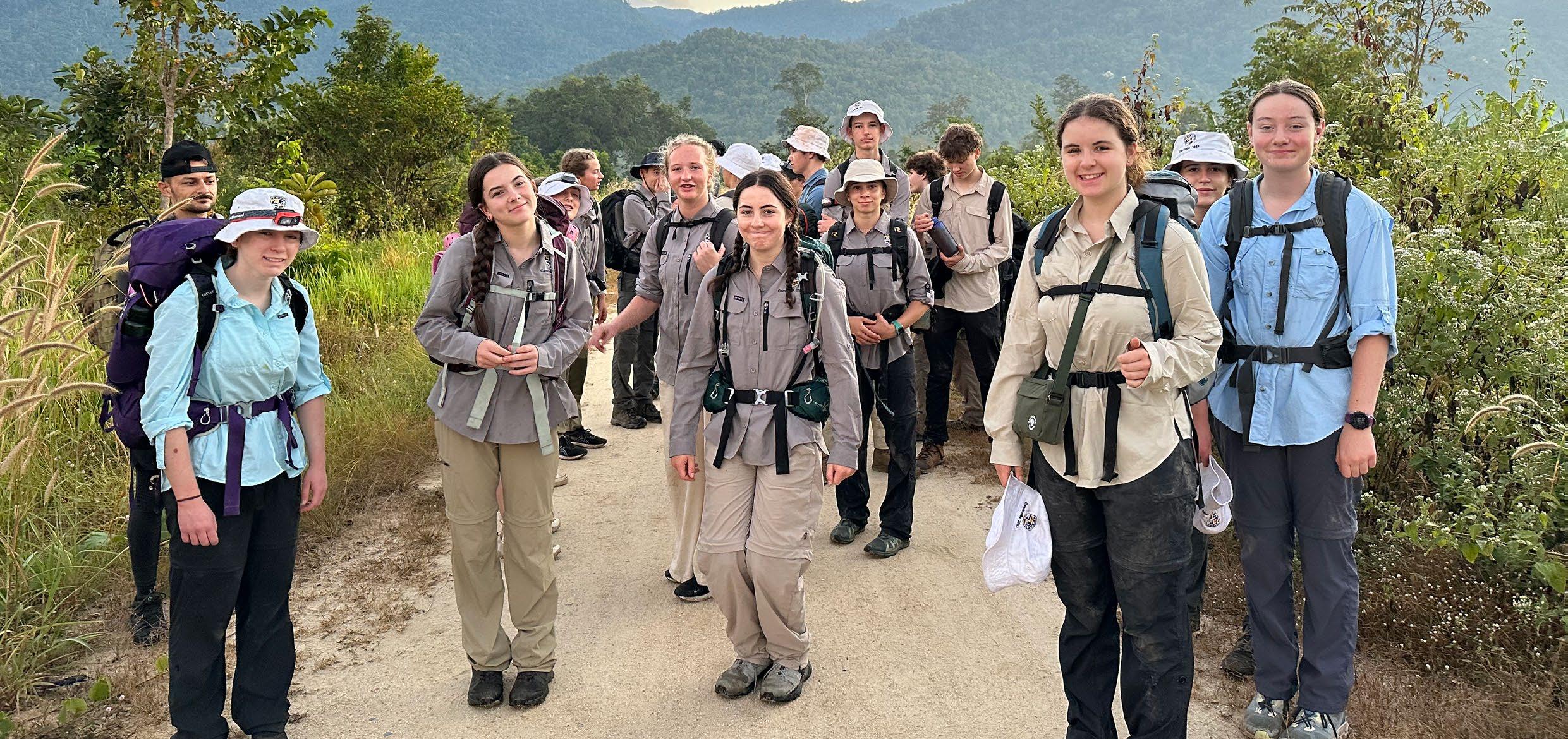
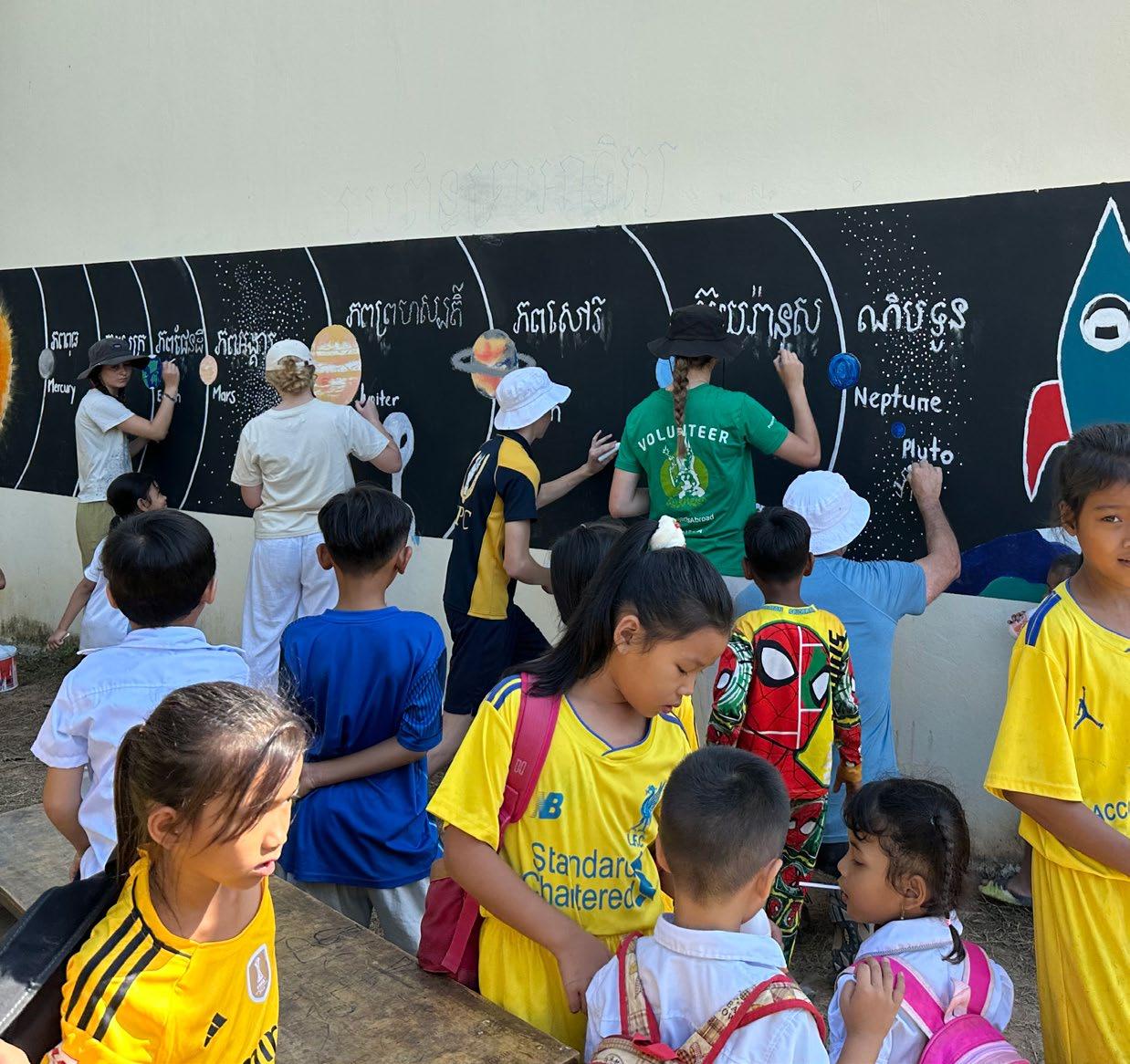
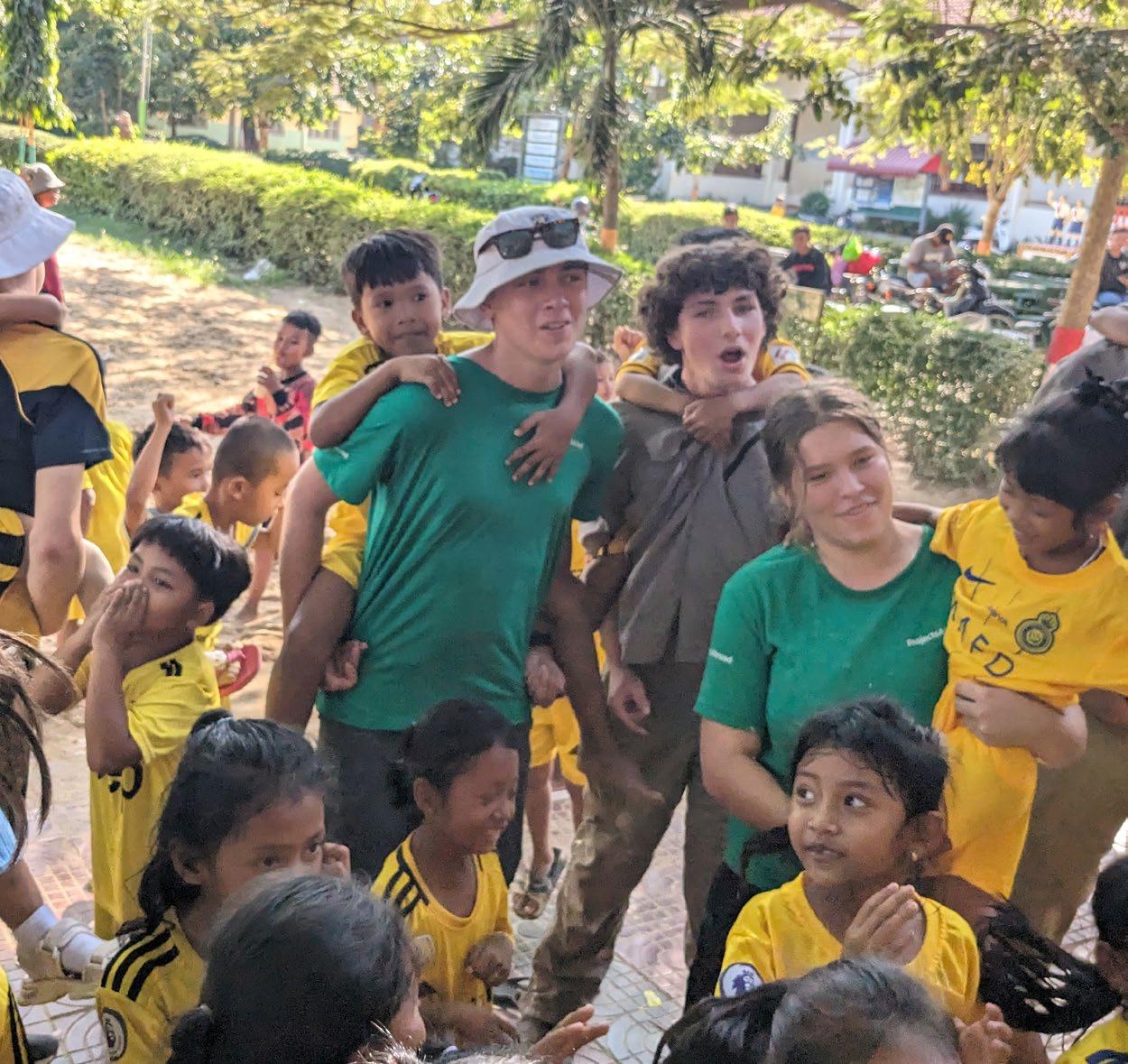
Q: Can you tell us a bit about your background in education and what led you to join our school?
A: I have worked in Brisbane and on the Gold Coast throughout my teaching career, at various schools, in both pastoral and curriculum, executive and middle leadership roles. I have also worked in both primary and secondary school settings, teaching a wide range of subjects across the curriculum. Working at Snowy Mountains Grammar School was a very exciting proposition for me, because I had always wanted to work in a rural setting and experience the education system in a different state of Australia other than Queensland. My family are familiar with the Snowy Mountains region, as we have experienced winter holidays over the years in this majestic part of Australia.
Q: what attracted you to the role of Deputy Principal at Snowy Mountains Grammar School?
A: Despite bidding farewell to the sunny Gold Coast, the allure of being part of a school that values every stakeholder, fosters a culture of continuous improvement, and that has experienced consistent growth in enrolments, was appealing. I am passionate about the opportunity to contribute to a community that prioritises the wellbeing and growth of its students, teachers and parents.
Q: what are your primary goals and priorities as Deputy Principal?
A: My foremost priority, and an ongoing commitment, is to forge meaningful connections within our school community, embracing diverse perspectives on the opportunities and challenges we face. Leading a cohesive school community where both students and teachers can realise their potential collectively and individually is at the core of my mission. Central to this is enhancing student and teacher agency, empowering them to navigate their educational journeys with confidence.
Q: what aspects of the school community are you most looking forward to being involved in?
A: I have loved engaging with various facets of our school community. Collaborating with our Director of Innovation in our Year 7 Skills lessons has been particularly rewarding. It has been great to witness our students tackle problems collaboratively and creatively. The prospect of Year 7 students building their own app in their Skills lessons this year is both exciting and a testament to the innovative spirit within our classrooms. Additionally, seeing the curiosity of the young minds in our Junior School classrooms has been delightful and I am looking forward to joining our Junior School camps in Term 2.
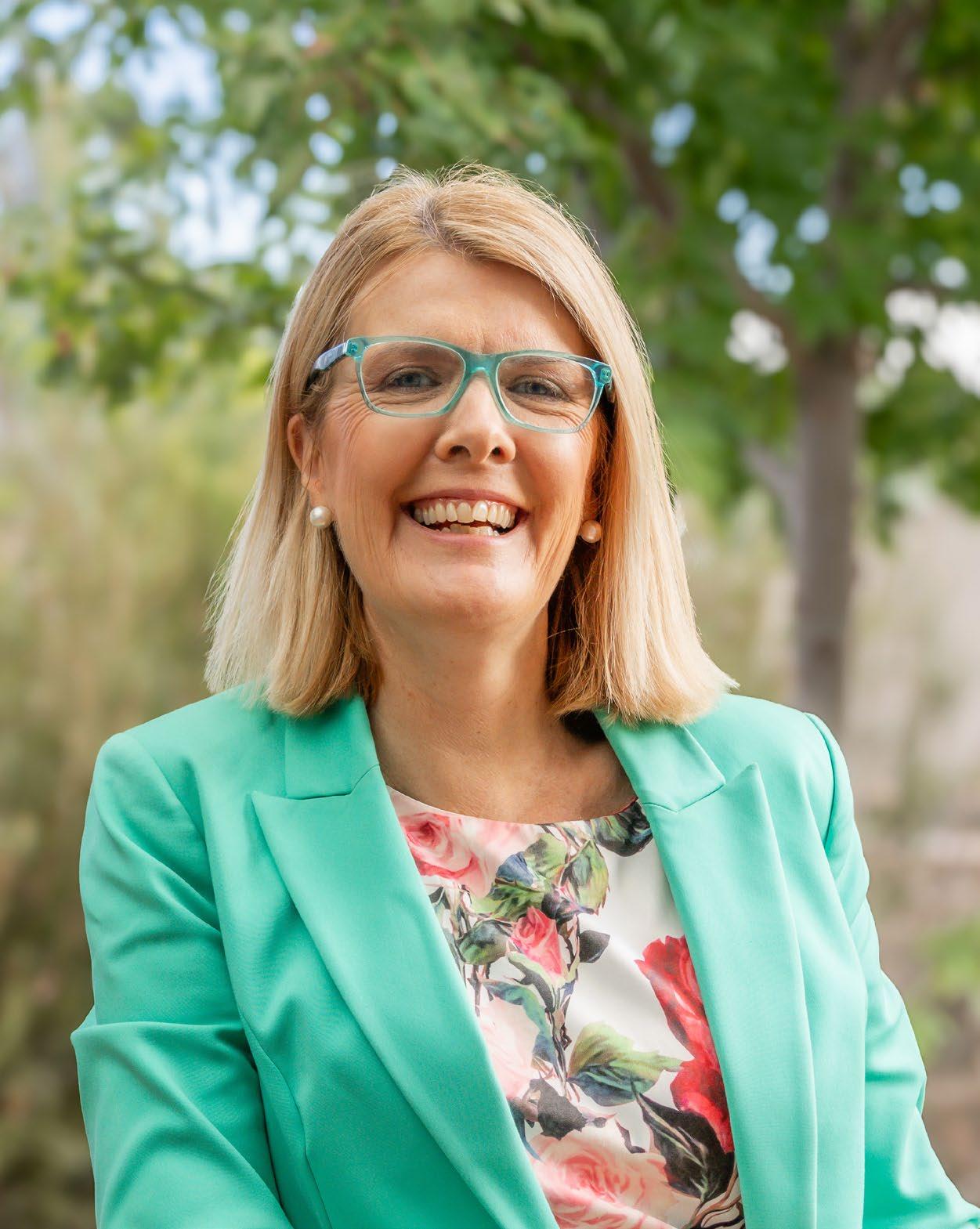
Q: Can you share any initiatives or projects you hope to implement during your time as Deputy Principal?
A: Coming from a background as a foreign language teacher and living in Japan for a couple of years, I have a passion for students to learn about other cultures and languages. I certainly want to be part of a team that increases our students’ global literacy and fosters some long-standing international relationships with schools overseas. Initiating programs that provide more opportunities for our female students to embrace STEM projects, such as establishing a female-led robotics team, is also an initiative that I hope to be involved with in the future.
Q: As you’ve been with us for a term now, how have you found settling into your role as Deputy Principal? Can you share some highlights?
A: Settling into my role as Deputy Principal has been filled with countless highlights. The warmth and support from our community have been particularly noteworthy, with students and staff extending friendly introductions right from my first day. The musical talents showcased at events and assemblies have left an impression on me, especially during Speech Day, when Olivia Henley delivered a moving performance. Living in the boarding house during Term 4 last year offered unique insights, such as witnessing the genuine excitement of senior girls receiving second-hand clothes—their gratitude and excitement resonated with the spirit of our school.

what was going through your mind when you found out you had placed 2nd at the Youth olympics?
When the judges’ scores came in and the event commentator announced that I was progressing to the big final, I knew at that stage that I had won a Youth Olympics medal. It was a surreal moment, and I was super excited.
Q: Could you describe the atmosphere and excitement of participating in such a prestigious event?
A: The atmosphere of the Youth Olympic Games was like nothing I’d ever experienced at a competition. All of the competitors lived in the athletes’ village together, so I got to meet lots of new people from different countries. It was really exciting to then compete against the friends I had made. Being part of such a talented and competitive environment helped push me to compete at my best.
Q: what was the most memorable moment for you during the Youth olympics?
A: There were so many incredible moments during the Youth Olympics, but my most memorable moment is when I got to hug my family, coach and Australian team members after I’d won the silver medal.
Q: How did you prepare mentally and physically for the competition? Did you have any pre-competition rituals or routines?
A: I try to keep my routine on the morning of competitions the same as the routine I follow every day for training. On the morning of the competition in Korea, I started the day by eating a huge breakfast so that I would have heaps of energy out on the mogul course. The days are quite long so it was important to be extra fuelled. After breakfast, I did a warmup to physically prepare my body and then I geared up to go out and compete. At the top of the course before my duals, I visualised my run to mentally prepare myself.
Can you share any valuable lessons or insights you gained from competing at the Youth olympics?
A: Something I learnt throughout my two weeks at the Youth Olympics was to mentally approach my competition run as if it is just another training run. This helped me to keep calm in the start gate and enjoy the moment.
Q: what advice would you give to younger athletes aspiring to reach the same level of competition as you?
A: My advice to younger athletes is to train hard, use any setbacks as motivation, and most importantly have fun.
Q: looking ahead, what are your goals and aspirations in your sporting career?
A: I see the Youth Olympics as a stepping stone towards my long-term goals of competing on the World Cup circuit and ultimately representing Australia at the Olympic Games.
BRooKE DARlINGToN Marketing and Public Relations[E] brooke.darlington@smgs.nsw.edu.au
A lively sports culture thrives within our school community—a community pulsating with energy and camaraderie. At Snowy Mountains Grammar School, sports are more than just games— they’re a vital part of who we are. Let’s delve into what makes our sports scene so special.
From rookies to seasoned athletes, our sports scene welcomes all. Whether it’s soccer, tennis or sports like skiing and mountain biking, there’s a place for everyone to explore their interests and talents.
Driven by passion and guided by dedicated teachers, the students at SMGS strive for greatness. Through hard work and support, they have remarkable triumphs and embody the true spirit of excellence.
In victory and defeat, every student learns resilience, humility and respect. Sports teach valuable life lessons that extend far beyond the field, shaping individuals of integrity and courage.
Shared victories and challenges forge deep connections among the students and teachers. Through sports, friendships blossom, creating a sense of belonging that enriches our school community.
As we continue our journey, we are excited to uphold the values of sportsmanship, inclusivity and teamwork. Together, let’s write the next chapter of our school’s sports story—one filled with passion, perseverance and unity.
The 2024 swimming carnivals were a perfect representation of our school culture. Both carnivals brought out the true spirit and legacy of SMGS.
The younger students in the Junior School Swimming Carnival felt both nervous and excited, but they created an awesome atmosphere by demonstrating their courageous attitude. They embraced every moment with grace, determination and respect for each other. We saw new relationships form throughout the Junior School as a result of the students’ outstanding sportsmanship and teamwork. It was also great to see some of the PASS students from Year 9/10 help at the carnival and make it memorable for the Junior School students.
Blake Kable
8 years—25 metre Butterfly—30.00 seconds
Addison Rogers
10 years—50 metre Backstroke—47.09 seconds.
Junior School House Results
1st Kiandra—369 points
2nd Cascades—317 points
3rd Twynam—306 points
4th Mowamba—213 points.
2024 Middle & Senior School Swimming Carnival
The Middle and Senior School Swimming Carnival was one to never forget. This is particularly special for the Class of 2024, as it was the first of our last carnivals. Every single person who participated at the swimming carnival helped to remind us of our school legacy: courage, ambition and enthusiasm. The spirit was extremely high throughout the whole day and lots of fun was had.
Overall, the 2024 SMGS swimming carnivals were definitely ones for the memory book. Everyone came together, continuing to build on the strong sense of unity among the school community. Thank you to all the teachers who worked behind the scenes to make this event possible. Also, a massive thank you to all the students who participated.
Senior School—New Record Holders
Xavier Ardron
17 Years—50 metre Breaststroke—34.59 seconds
17 Years—50 metre Backstroke—33.03 seconds
17 Years—50 metre Butterfly—30.81 seconds
17 Years—100 metre Freestyle—1:00.53 minutes
Tor Paxton
13 Years—50 metre Freestyle—30.50 seconds
Sienna Sky
16 Years—50 metre Backstroke—36.65 seconds
Ava Cummings
14 Years—100 metre Freestyle—1:09.60 minutes.
Senior School House Results
1st Cascades—787 points
2nd Kiandra—621 points
3rd Mowamba—582 points
4th Twynam—497 points.
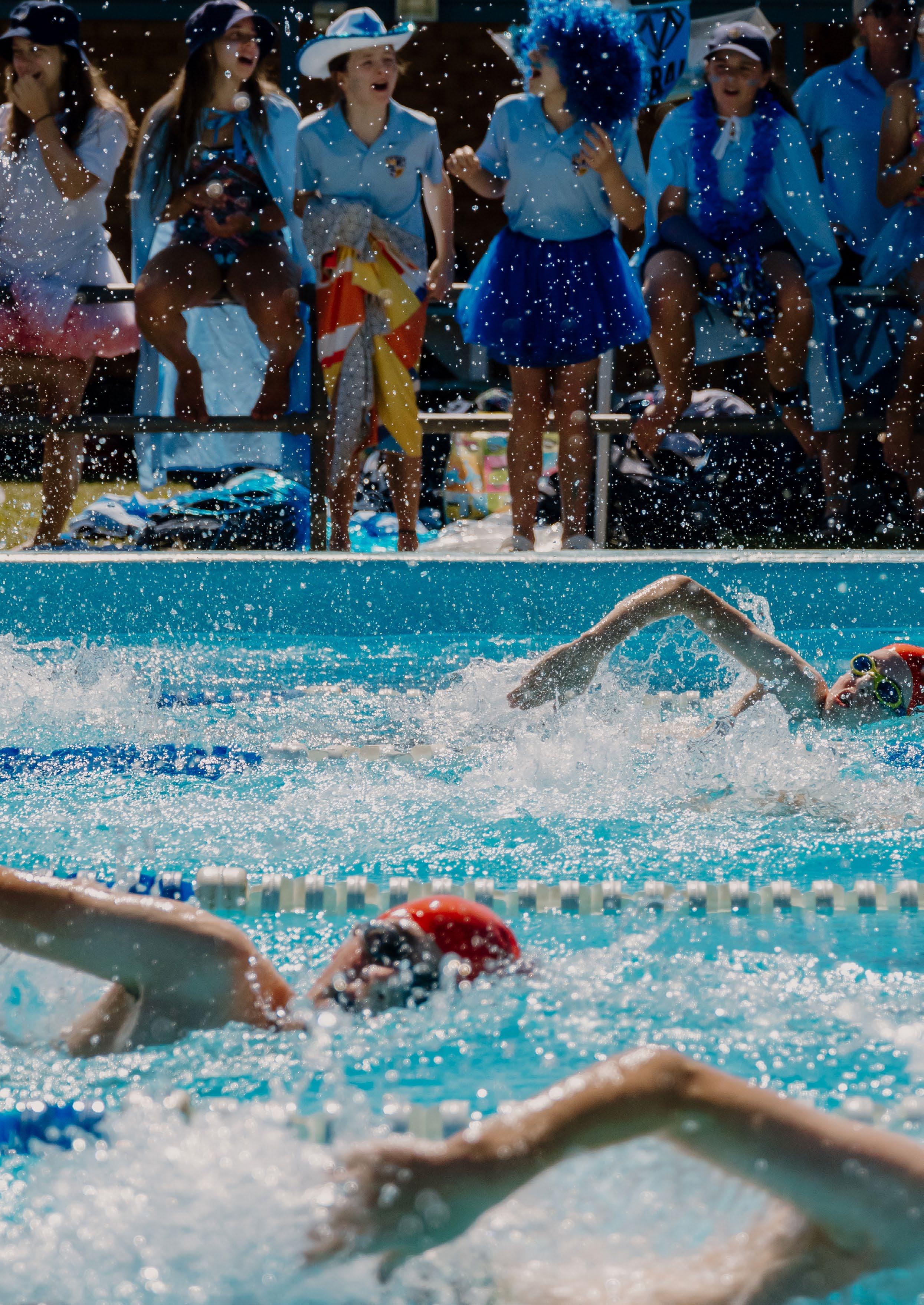
CHARloTTE MooNEY AND JESSE PASKE SMGS Sports Captains
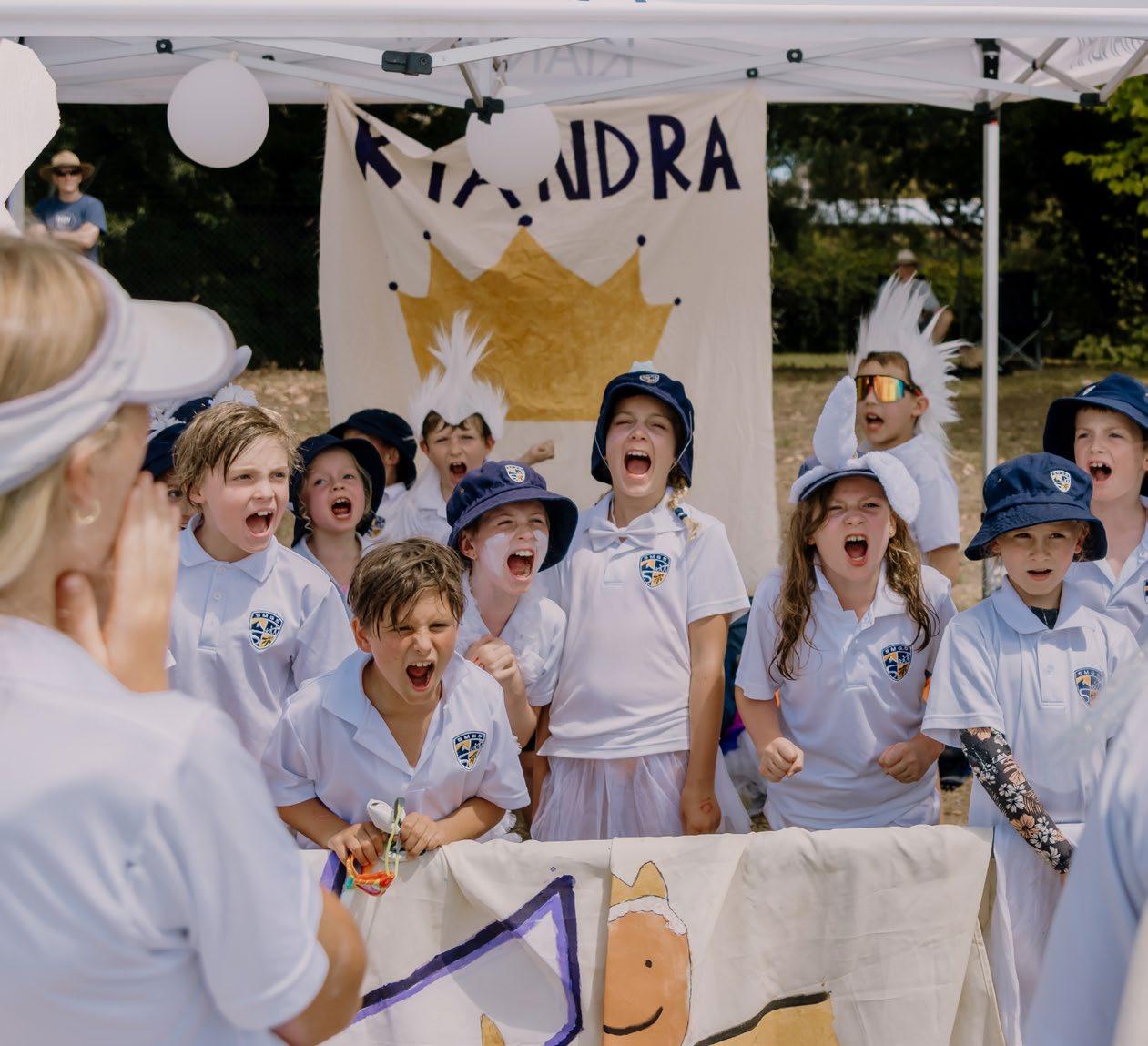
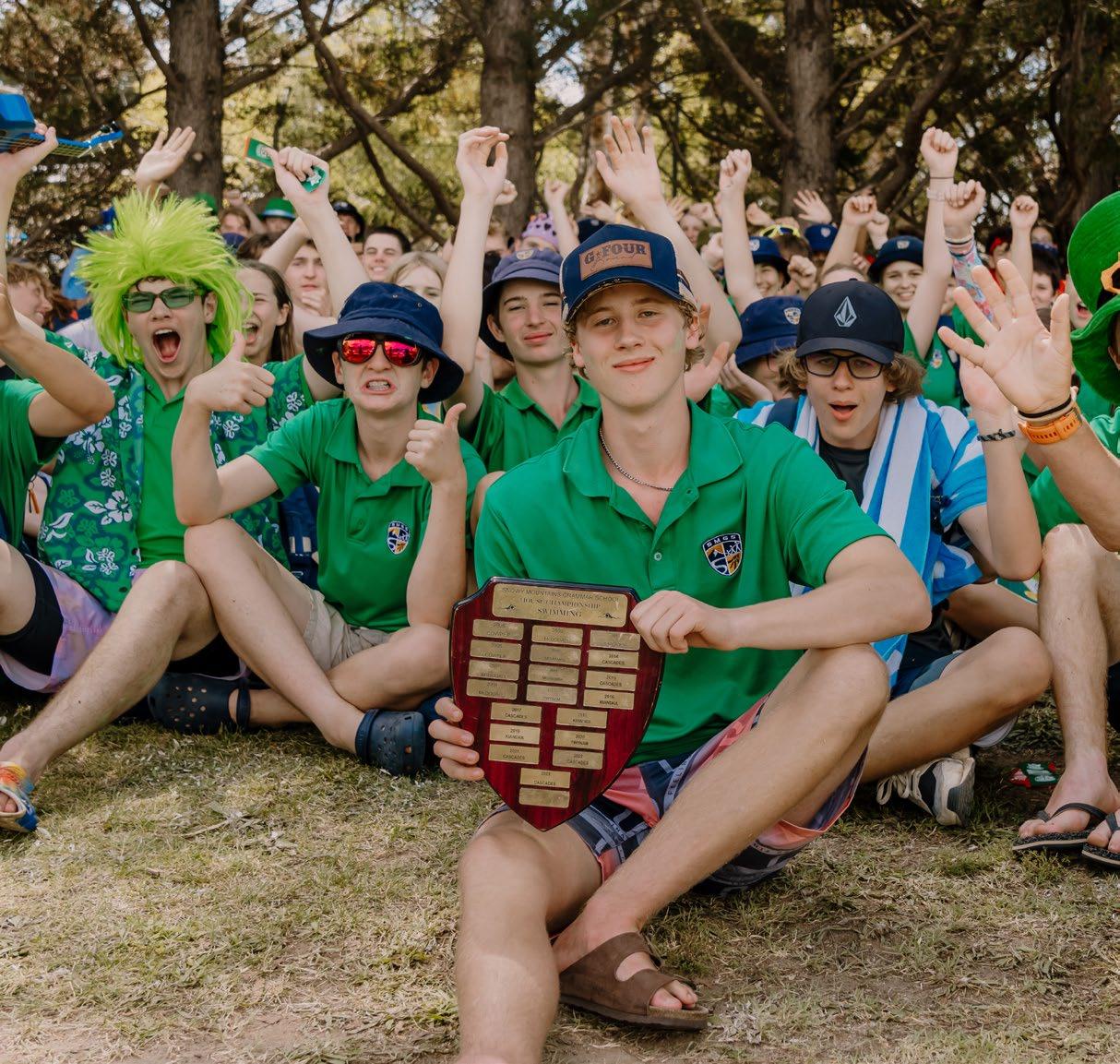

Swimming Carnival Highlights [watch video]
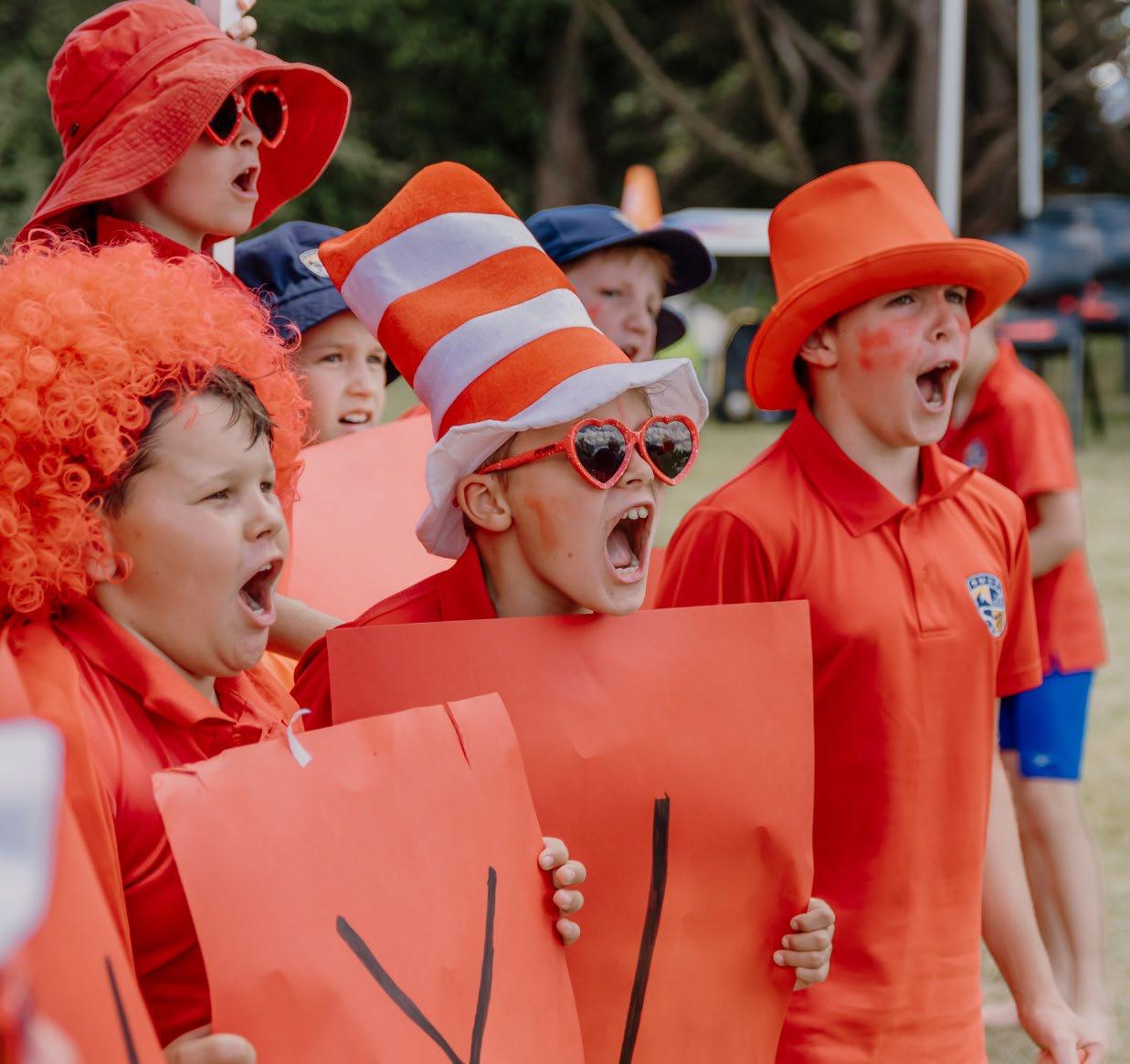


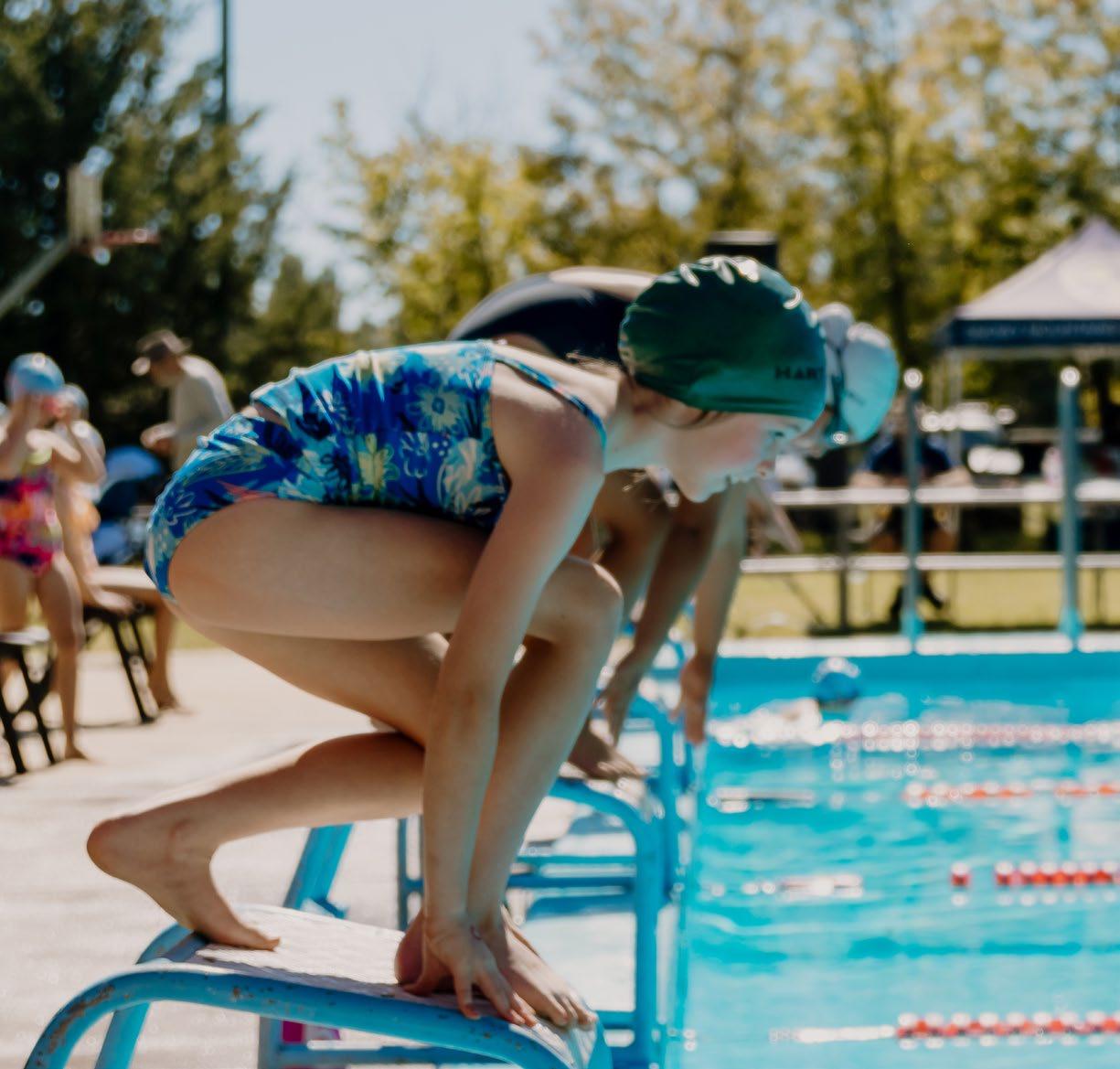

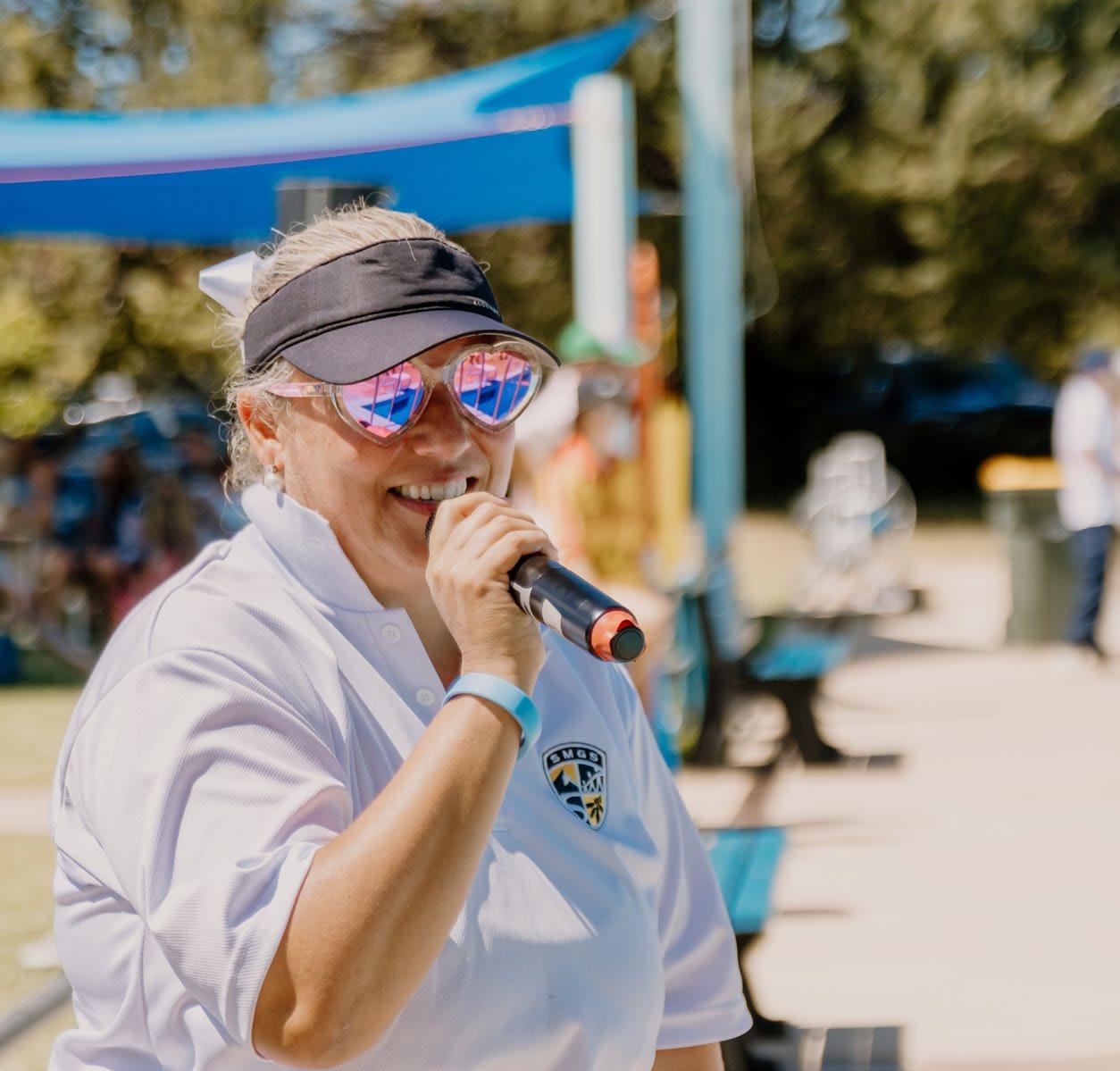
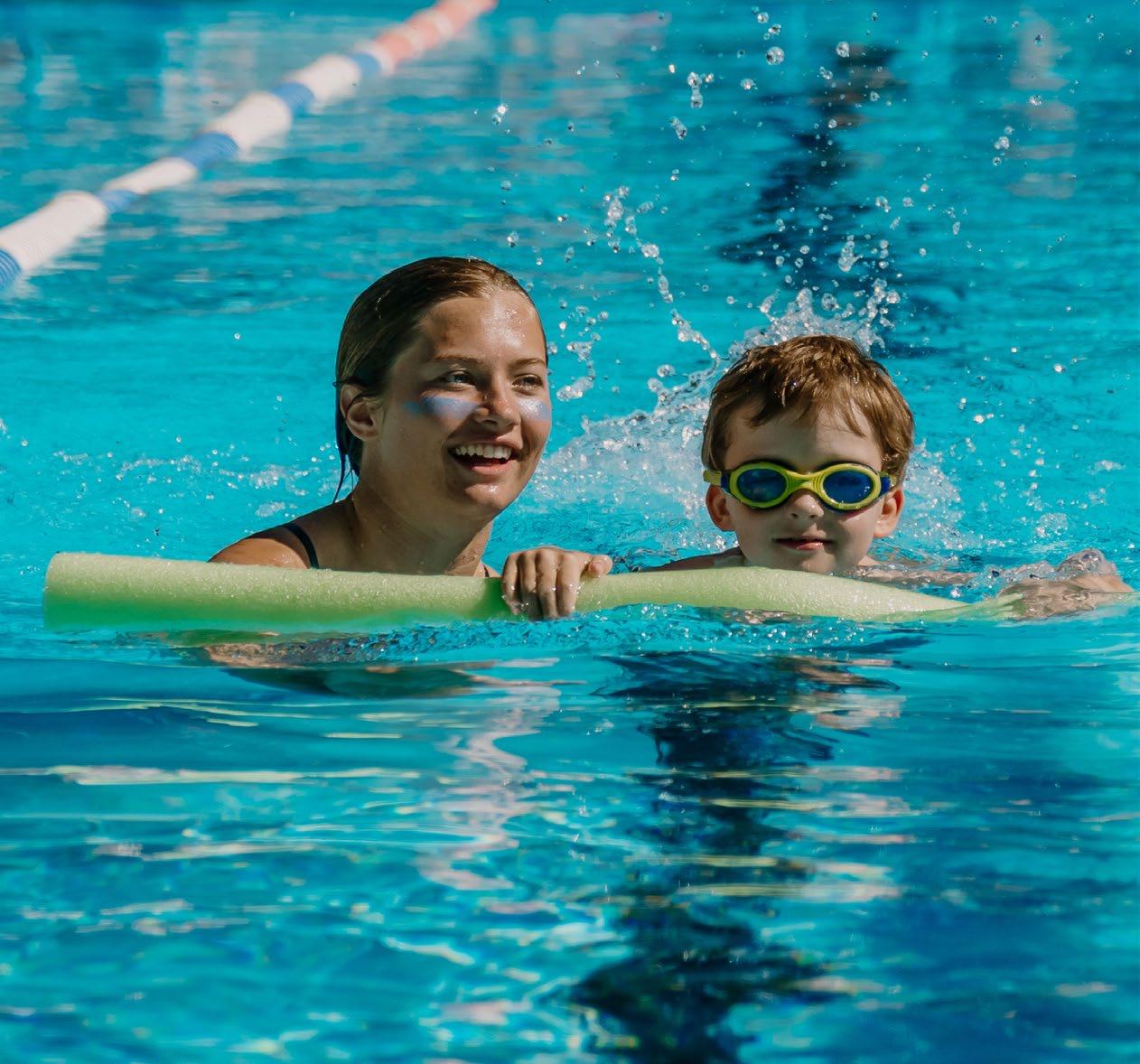
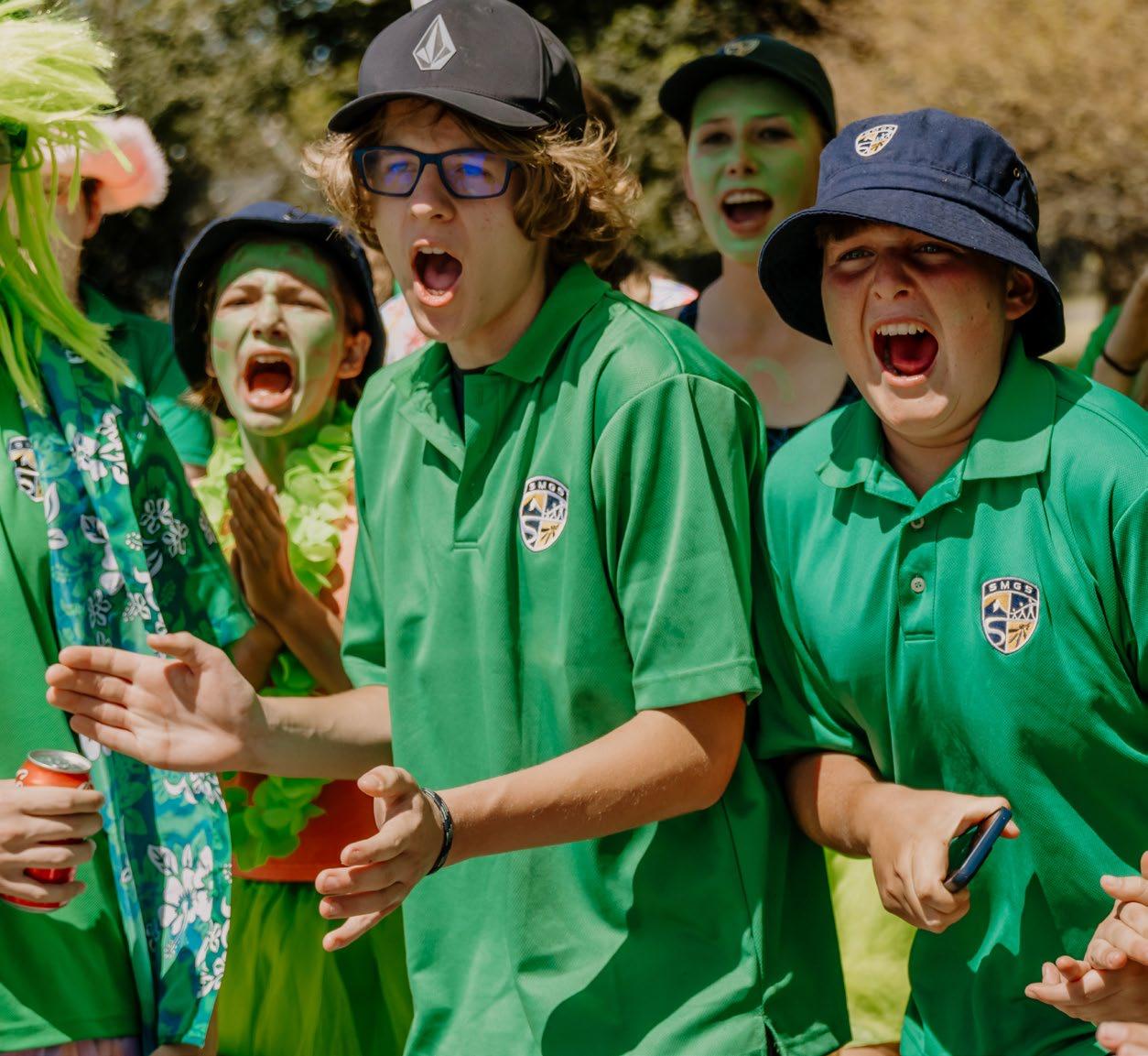
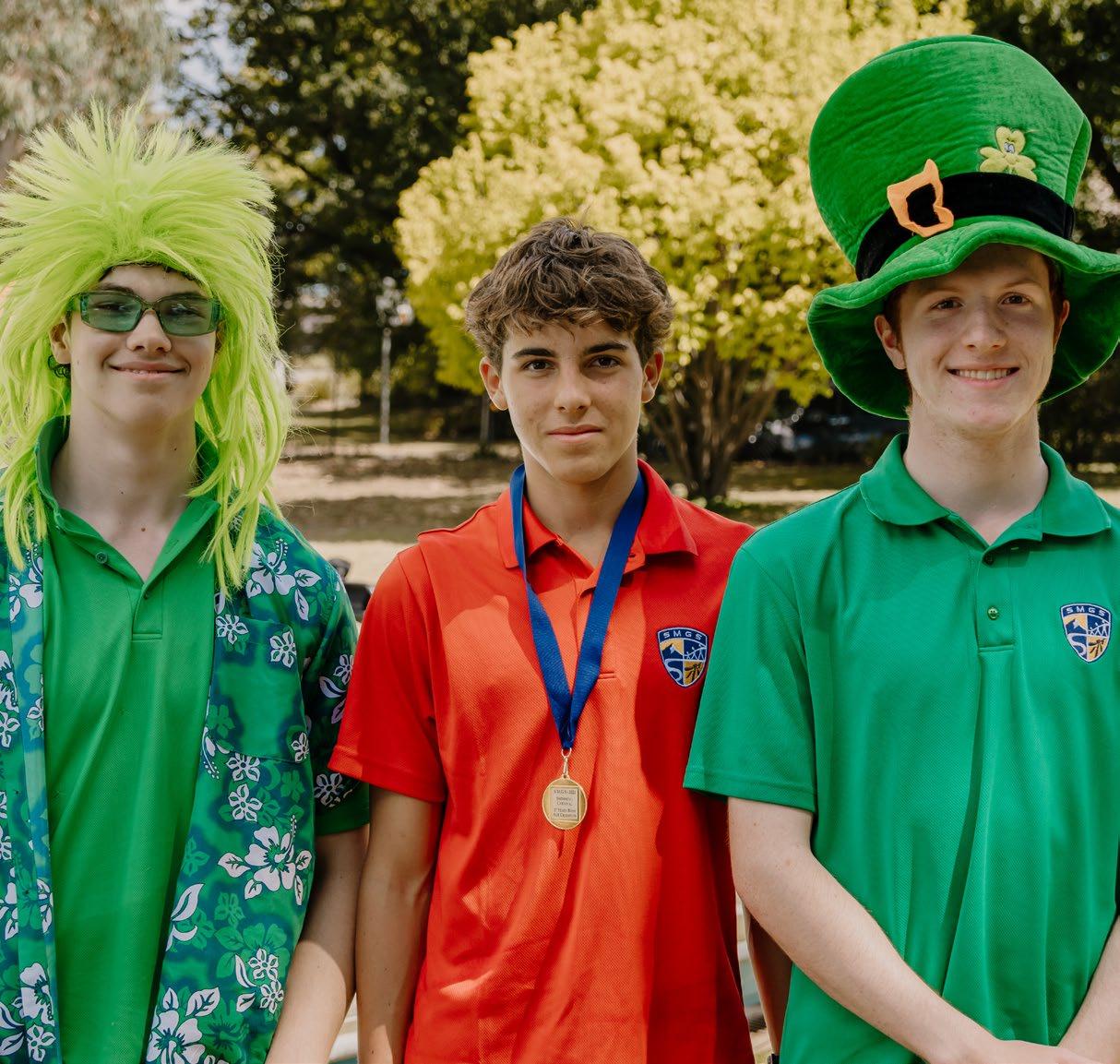

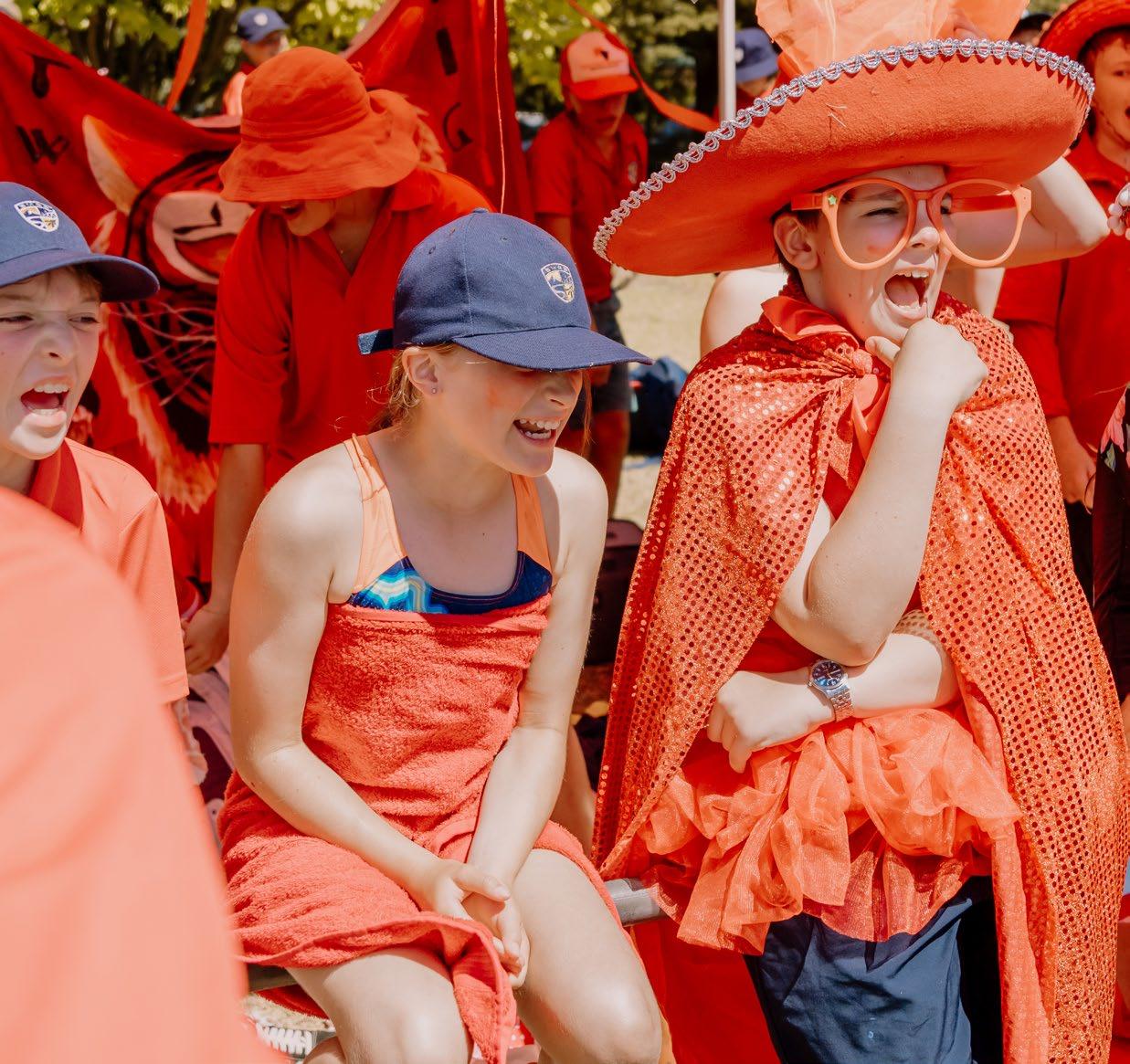
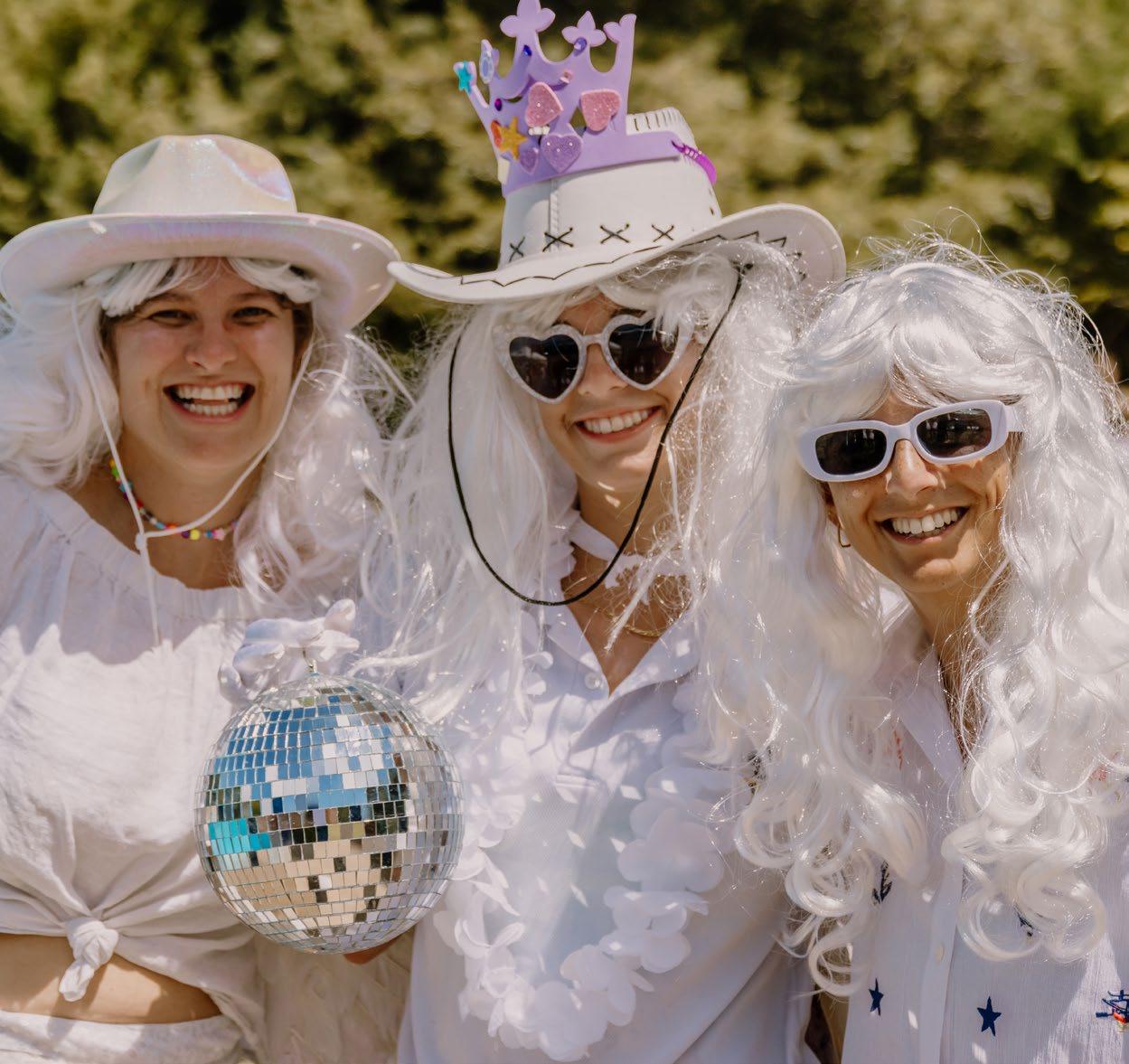
Our Foundation Day alumni speaker for 2023 was Kelsey Boreham. Kelsey grew up in the Snowy Mountains towns of Cabramurra and Jindabyne and attended Snowy Mountains Grammar School from its first year of operation in 1996.
Kelsey graduated from SMGS with the Class of 2001. After a series of skiing-related intermissions, he earned a bachelor’s degree in commerce through the University of Canberra, and Juris Doctor and master’s degrees in law through the Australian National University, specialising in international law.
Following admission to the ACT and Commonwealth legal jurisdictions in 2009, Kelsey practised commercial and construction law with the firm Clayton Utz. He then transitioned to government practice, working with the Australian Antarctic Division on infrastructure modernisation and working as general counsel to the Commonwealth national parks management agency, Parks Australia.
Kelsey and his wife Kate Booker (another SMGS 2001 graduate) returned to Jindabyne in 2021 with their two children, Elva and Rhys. Kelsey now works with the NSW National Parks and Wildlife Service, managing environmental and development issues around the alpine resorts.
Throughout his education and career, Kelsey has never lost sight of his passions. Coaching moguls skiing at Perisher and in North America helped fund travel and his studies. He is also an avid cyclist, both mountain and road, and has raced for many years as part of a National Road Series–registered cycling team.
Q: what path did you follow after you graduated from SMGS? How did you become interested in that pathway (education, career, interest)?
A: Like many kids growing up in the Snowy Mountains, I developed a passion for snowsports from an early age. For many years I remained tied to the mountains, coaching moguls skiing in Australia and North America. That profession provided me with the means to travel the world extensively and tied in nicely with study.
In various stints (full- and part-time) I spent about ten years at university. It was skiing and the outdoors that kept me motivated and fed for most of that time. As my studies neared their end, I found myself in private legal practice. The haircut, pinstriped suit and billable hours necessary to survive as a corporate lawyer all came as a shock to someone used to earning their living in ski boots. However, time served in that area enabled me to build skills, work ethic and resilience, which were crucial stepping stones to organisations that better aligned with my ethos.
Working as in-house counsel for the Hobart-based Australian Antarctic Division and Canberra–Darwin based Parks Australia allowed me to use my skills to support scientific endeavour and conservation in some very special Australian locations. The logistical complexity and physical risk associated with operating in remote places such as the Australian Antarctic Territory, Macquarie Island and Kakadu National Park provided a tangible and welcome challenge to the ordinarily abstract profession of legal advisory.
My wife Kate and I returned to Jindabyne in 2020, working remotely to escape city apartment living, with our two small

with some general guidance from our ex-army headmaster and our PE teacher, we were let loose in the bush often and for days at a time.
children. The move was initially temporary but re-kindled our love of the area and desire to provide our children with the kind of upbringing that we’d both enjoyed here. Fortunately, the right jobs came along for us locally and the move became permanent.
Q: what is your current occupation, organisation and position?
A: I currently work as Principal Project Officer with the NSW National Parks and Wildlife Service. I manage a team that deals with environmental management and development-related issues in the alpine resorts of Kosciuszko National Park. We also provide input on the Snowy Mountains Special Activation Precinct strategic planning program as it relates to the park.
Q: what is the biggest source of motivation for your career and life pursuits?
A: I have a relatively disciplined personality that likes to set goals and work hard to achieve them in a fairly linear way. I apply this mentality to most of the threads of my life—career, sport, family, giving back to the community, etc. I think working across the various threads is the key (i.e., keep some balance), so that at least I feel like I’m moving forward in some areas even if others are stalling. Obviously, goals interfere with each other and unforeseen barriers arise but, with some rethinking and recalibration, nothing is insurmountable.
Q: How did your time at SMGS help you in your journey to your current career and life pursuits?
A: I attended SMGS from its first year of operation, when most local kids either endured daily bus trips to Cooma or left home to attend boarding school. A new high school in town was a big deal, but one which offered programs and the flexibility to enjoy everything the mountains had to offer was even better.
SMGS was a small school, in which I felt comfortable and supported, especially through those awkward coming-of-age years. It provided opportunities and programs that built confidence and independence, which shaped my sense of identity. Obviously, a quality education was important, and SMGS provided that through some dedicated staff and the links to Redlands that existed in the early years.
Although we didn’t know it at the time, I also met my future wife at SMGS. Given she’s the brains and motivation behind most of my later exploits, that probably warrants mentioning!
Q: what are some of your most memorable moments from your time at SMGS?
A: There were many—my fellow students and I had a fair bit of latitude in those days and probably got up to lots of things we shouldn’t have. The memories that stand out, though, are those from the outdoor education programs: running, riding and hiking. With some general guidance from our ex-army headmaster and our PE teacher, we were let loose in the bush often and for days at a time.
From the Duke of Edinburgh program, I have memories of navigating through the Budawangs in the dark, and forced marches out of the Lower Snowy in the middle of a thunderstorm. However, add to that some backcountry mud fights and communal hot chocolate pots so thick the stirring spoon would stand upright, and it’s fair to say they’re nearly all cherished memories.
Q: what programs did you participate in and what co-curricular opportunities did you have?
A: Primarily sport and outdoor ed–focused—skiing obviously, but also riding, sailing and running. I dabbled in band, debating and writing. As mentioned, though, the Duke of Edinburgh program was a major focus for me and I pursued it all the way through high school. I remain a firm believer in the philosophy behind the award and its focus on health, community service, the outdoors and the environment. Do the Duke of Edinburgh’s Award, kids—it creates great human beings.
Q: what advice would you give to students who are beginning their HSC journey and starting to think about their future after they graduate?
A: There’s a lot going on in the last couple of years of high school— pressure to perform well in the HSC and make decisions that feel like they’re going to shape the rest of your life. Of course, it’s important to make the most of the opportunities you have available at SMGS and give the HSC a red-hot crack. However, treating your results and decisions as ‘make or break’ will cause anxiety and do more harm than good. Remember it’s a long life and this is far from the last opportunity you’ll have to steer life in the direction you want it to go.
I was someone who stressed overly about the HSC and needed to get the best results, to get into the best university, to get into the best law firm, to pursue the most lucrative career. It took me quite a few years to really figure out what I valued most and what I was good at. Spend your senior years getting a head start on me—work on figuring out who you are and what you’re passionate about, then go after it with discipline and determination.
Q: what does it mean to you to be a part of the SMGS Alumni/ old Scholars community?
A: While I’ve kept in touch with some former alumni and scholars, I’m a relatively recent returnee to the SMGS and broader Jindabyne community. I’m looking forward to reconnecting and supporting that community with the benefit of the skills and experience I’ve accrued.
There are certainly some teachers I’d like to reconnect with and thank for the time and effort they invested in me. Regardless of the subject, the right teachers leave lifelong positive impressions. I have particular SMGS teachers to thank for instilling in me a love of literature and writing, curiosity about the natural world and appreciation for scientific endeavour.
BRooKE DARlINGToN Marketing and Public RelationsNadia
Although the Year 10 camp was exhausting and a tough time, this would have to be my favourite camp so far. My most memorable moments were the river crossings (a few people fell in), setting up camp and cooking dinner in a Trangia circle, and finding a dried-up river bed that we could easily walk down to, so we could make our next campsite where we could relax and swim in the river.
The most engaging part of the camp would have to be going through rapids on a canoe, which was thrilling but also frustrating when communication with your partner goes out the window. The most challenging part of camp was doing steep declines on the hiking days and packing up reasonably early every morning (sometimes with a wet tent). Overall, camp was a challenging but fun and rewarding experience that I think most students will miss.

lola
Memorable moments from camp
Cooking in the Trangia circle, doing the river rapids in the canoes, playing cards, chatting with new people on the hike and swimming in the Snowy River.
overview of the camp
Year 10 camp was a fun camp but definitely a challenging one. It wasn’t easy but that only brought us closer together and allowed us to build connections with everyone and lead the way. It was a very rewarding camp overall, especially when getting to our campsite.
Most engaging part of the camp
Canoeing was something different that not everyone had done, so as much as it was a challenge to get the hang of it, it was way better than hiking. The rapids were so entertaining, as it was always a mystery as to who would fall in this time and what the rapids were even going to be like.
Most challenging part of the camp
Hiking was definitely the most challenging aspect of camp, especially walking down the hill on the first day, as it was towards the end of the day, so everything had started to hurt. Also, trying not to slip down the hill or to find a way that would least hurt definitely added to the pain.
Stella
Memorable moments from camp
Connecting with everyone in the group and laughing through all the pain, playing cards and looking at the stars.
overview of the camp
The Year 10 camp was a rewarding experience and I learnt lots of new life skills. It bonded the year group and I think everyone was pushed out of their comfort zones. The guides and the teachers on the camp really helped to make the experience a lot more positive and exciting.
Most engaging part of the camp
Doing the canoeing, trying to figure out the best paddle rhythm, going down the rapids and trying not to fall in.
Most challenging part of the camp
The most challenging part was the hike, although it was the most rewarding. It was hard to try and choose the best path to navigate through the bush, especially since I haven’t done much navigating before in real-world situations.
Rome and Holliday
Memorable moments from camp
The Trangia circle, surf lessons, watching Mr Hughes taking a little nap, Finn catching a fish, catching up with our friends after the holidays.
Most engaging part of the camp
Engaging with people that you wouldn’t usually engage with.
The whole camp was a fun and challenging experience that made us all connect and make memories.
Most challenging part of the camp
The hike and the 4 km run on the beach, sleeping, having to move camps.
Finn
Most engaging part of the camp
The opportunity to walk with friends and being able to enjoy the hike together and help each other endure the challenge of the hike.
The opportunity to swim (to fish, for me).
The opportunities in some areas to walk along the beach or on an inland track.
How this year’s camp came with more responsibility.
How we had the option to choose who would be in our tents.
The surf lesson on the last day and the opportunity to have showers, which at that point was a great reward for the past couple of days of hiking.
Most challenging part of the camp
It was a great camp so it is hard to find any faults at all.
It was a bit disappointing that we didn’t get to do the full wharfto-wharf hike because of track maintenance, but the alternative was just as fun anyway.
Tayla S and lilly H
Memorable moments from camp
Swimming, the night in the caravan park and going surfing.
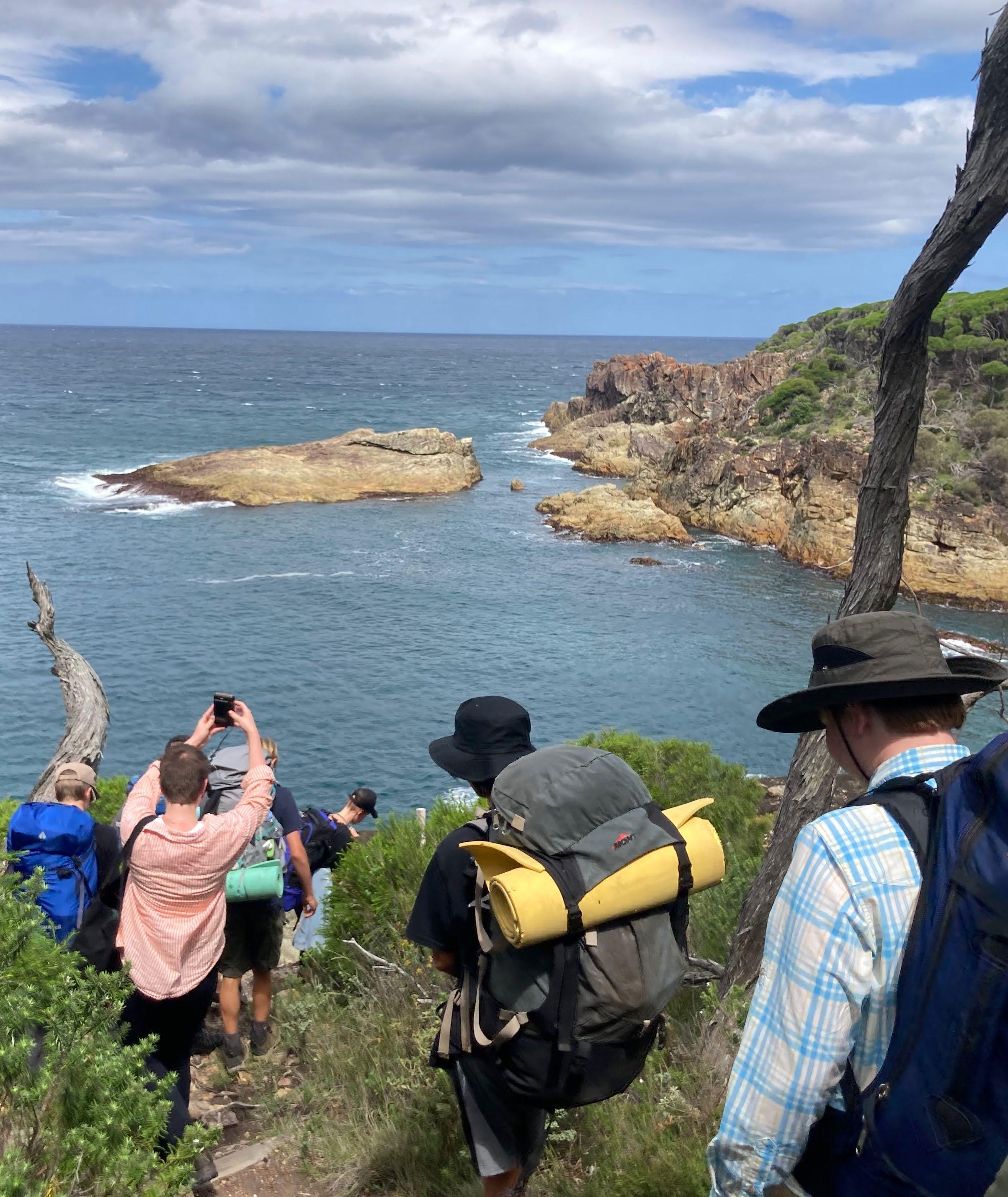
overview of the camp
We went on a 12 km hike on the first day, on which some bags got lost, then more hiking and camping.
On the third day we hiked along the beach, then caught a bus to the Pambula caravan park where we stayed for the last night. The pizza for dinner was really good, then the next day we went to our first surf lesson and went swimming and surfing again. We had lots of fun and got food from the shop, then we drove back to school.
Most engaging part of the camp
The surfing and swimming.
Most challenging part of the camp
The second day as we were all tired from the 12 km hike.
One could easily be bogged down recounting middling trifles at camp, such as the loose gravel which sent kids off their mountain bikes skyward, only to descend back down to earth with a sickening crunch. One could also mention the day of persistent rain followed by scorching sun, and the tasteless dehydrated rations. But I am not one to complain.
Instead, let’s reminisce on some memorable moments.
On the first day of camp, we rode some 11 km through pouring rain from a drop-off point on the Alpine Way to our campsite at Major Clews Hut. There were several river crossings and—for some—an unplanned dip. We were encamped near a shallow creek and enjoyed a little wade to cool off.
The second day saw us hop on our bikes and set off towards Geehi Flats, where we would be camping for the last two nights of our expedition. The 12 km trail was a mostly uphill, rutted-
out 4WD track. Day two brought out everyone’s true colours, as we encouraged each other to reach the summit. Near the end of our ride, the road opened up to a field brimming with wildflowers and breathtaking views of the mountains.

Our third day was a little more cruisy, with a later start and many sore bottoms. We pulled on our hiking boots and embarked on a bushwalk through the Geehi wilderness for 15 km, flanked by luscious ferns and towering mountain ash gums. We had a swim towards the end of the walk, fully clothed, and shrieking from the bone-chilling water. The walk home was a mix of squelching boots and hysterical laughter.
By day four, we were pungent, exhausted, and in dire need of a hot shower. During the Murray Power Station tour, many snuck in powernaps in the bus trips between stations.
Year 8 camp was filled with mud, mirth and many memories that we’ll all never forget.
Annalise
Year 7 camp was an unforgettable experience. We did various activities like abseiling, rock climbing, crate climbing, river sledding and even had the opportunity to paint totem poles, which was a unique experience. However, the best part of the camp was getting to know everyone better. Before camp, I only knew a few people, but during the camp, I got to know everyone a lot better. We spent time together, shared stories and made new friends.

Although all the activities were new and exciting, river sledding stood out the most. Like many other people, it was my first time, and I was hesitant to jump in at first, but my friends encouraged me, and I’m so glad I did it. My biggest challenge was abseiling. I was scared, but I faced my fears, and I’m proud of myself for doing it. Overall, camp was a fantastic journey full of surprises, challenges and triumphs. I learned a lot about myself and my classmates. I’m grateful for the experience, and I can’t wait for the next one.
Snowy Mountains Grammar School is thrilled to announce the forthcoming opening of our cutting-edge fitness facility in the first half of 2024. This facility within the Geehi building will provide students with state-of-the-art equipment and spaces to promote physical health, social interaction and personal development.
Generously funded by contributions from our dedicated parents and friends, including proceeds from our 2023 Car Raffle, the fitness facility will feature a range of cardio and weight-training equipment. With access available outside school hours, students will have ample opportunities to prioritise their wellbeing and fitness.
In addition, we are grateful for the NSW Government’s $1 million capital works grant through the Building Grants Assistance Scheme, which will facilitate essential upgrades
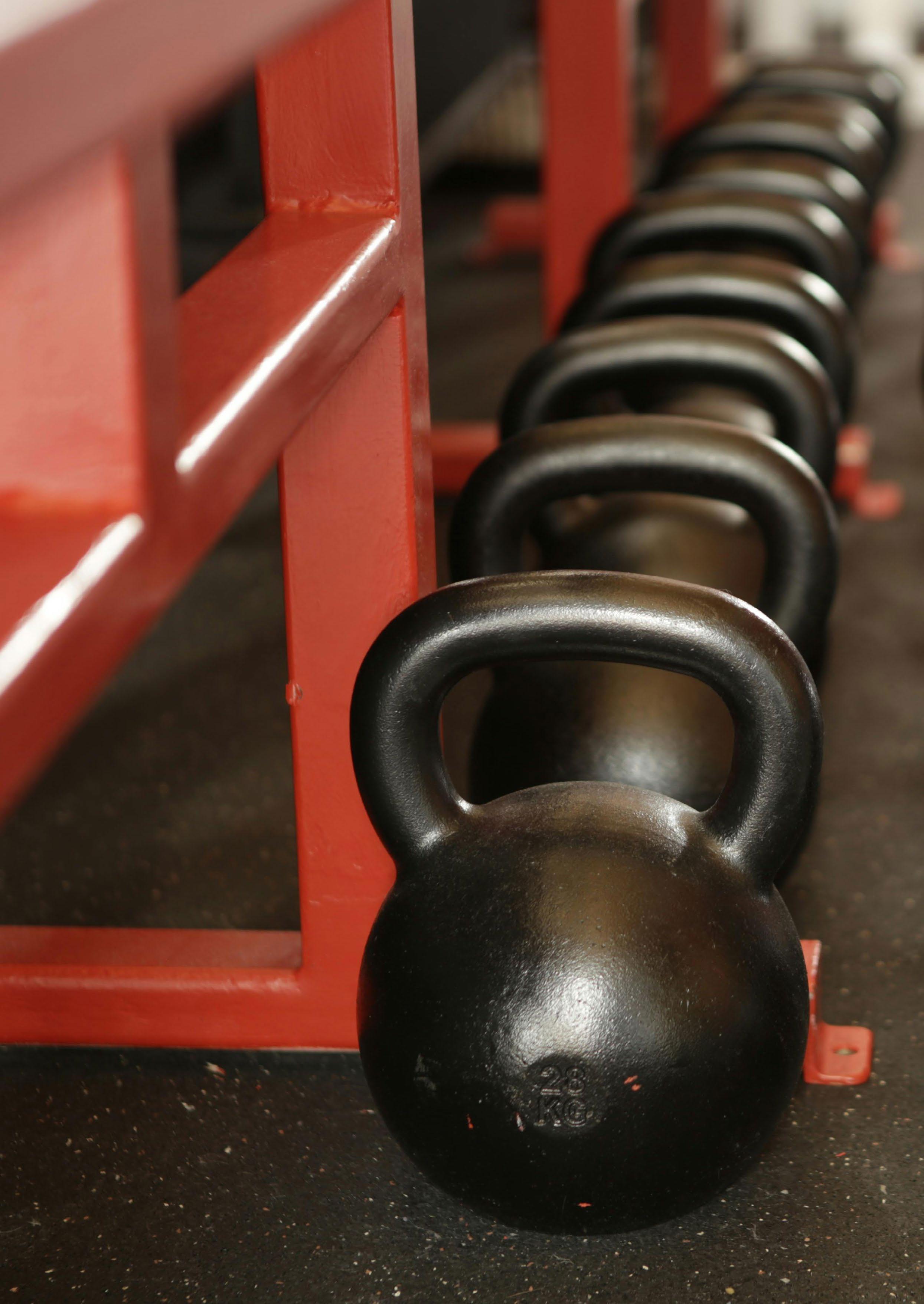
to the Geehi building. These enhancements include new classrooms, student changing rooms, bathrooms and expanded office space, catering to our growing student population and supporting our commitment to quality education.
We extend our deepest appreciation to the NSW Government and the parents and friends of Snowy Mountains Grammar School for their unwavering support. Together, we are shaping a campus that fosters excellence in learning, health and community.
Snowy Mountains Grammar School is excited to introduce ‘Maths Matters’, a lunchtime catch-up session aimed at enhancing your child’s mathematical understanding and providing extra support where needed.
what Is Maths Matters?
It is a weekly initiative led by our passionate mathematics teachers, designed to address the unique needs of our students. This lunchtime session serves a dual purpose: first, to assist students who may not have completed their mathematics homework during the week and, second, to offer additional help to any students who find themselves grappling with mathematical concepts.
when and where?
Maths Matters will take place at lunchtime every Friday in the school library. This central location provides a quiet space for focused learning, ensuring that students can make the most of this valuable opportunity.
why Does Maths Matter?
Every student deserves the chance to grasp mathematical concepts with confidence. Maths Matters aims to bridge the gap between homework assignments and a deep understanding of the subject.
Maths Matters will play a crucial role in nurturing accountability among our students. By providing support to complete weekly homework assignments, we aim to instil in students a sense of responsibility and commitment to their academic tasks. This encourages students to take ownership of their learning journey and empowers them to overcome challenges.
We understand the vital role parents play in their children’s education. We encourage you to discuss Maths Matters with your child and to emphasise the importance of taking advantage of this additional support if it is needed.
Please know that Bright Sparks will continue to run on Tuesdays and Thursdays, 4.00–5.30 pm, in the library. We aim to have a mathematics teacher present at every Bright Sparks session, and students are encouraged come along if they need further support.
BECK GRATToNHead of Faculty—Mathematics
[E] beck.gratton@smgs.nsw.edu.au
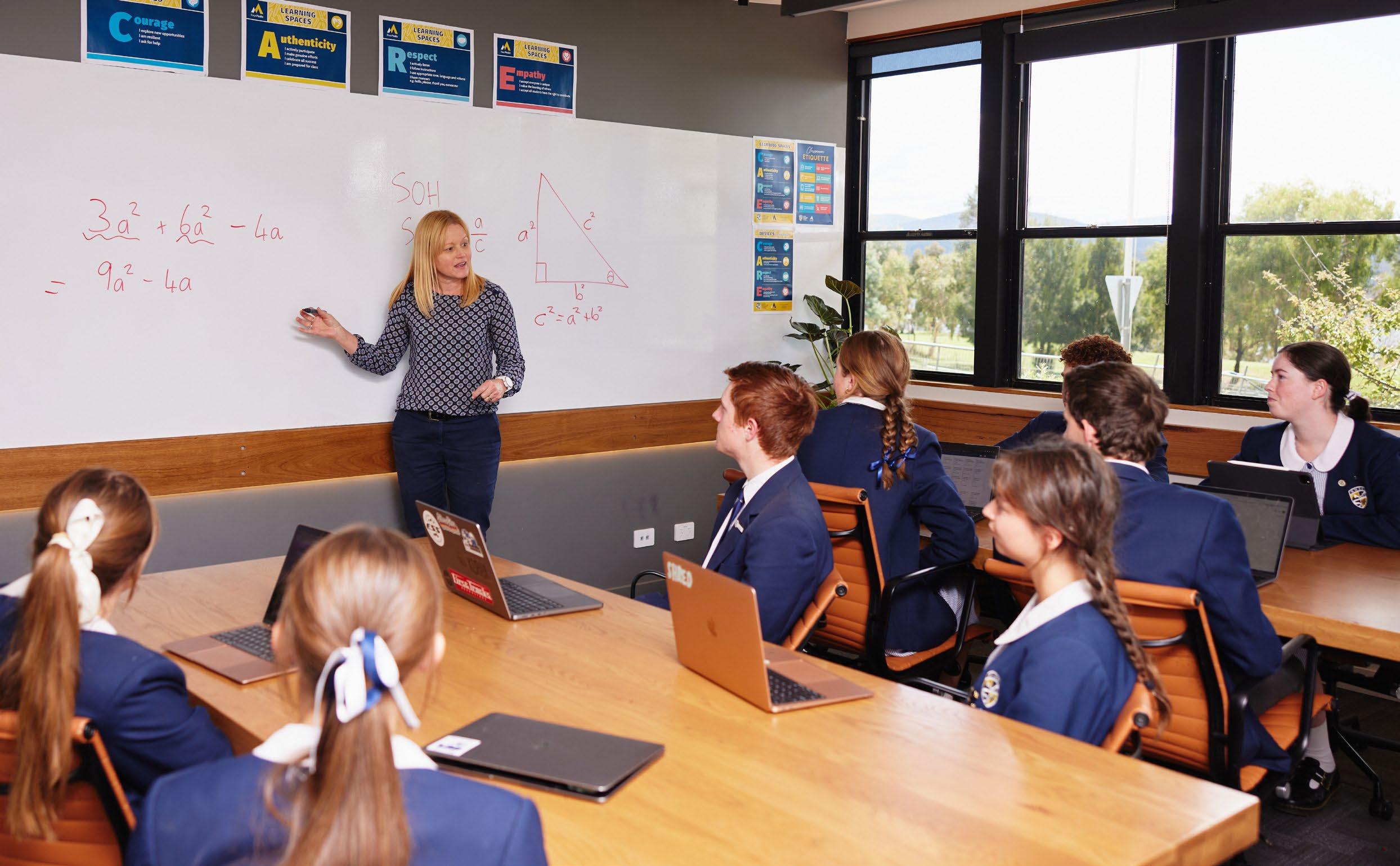
Agriculture and Technology students from Stages 4 to 6 have been eagerly anticipating the arrival of animals at Snowy Mountains Grammar School. In Week 2, students were excited to welcome the addition of two South Devon steers and six layer chickens to the newly developed SMGS agriculture zone. The steers were kindly donated by Duncan Reid, a Nimmitabel property owner, and have been named Mataeo and Chester by Year 10 and Year 11 students. The six layer chickens (three Isa Browns and three White Sussexes) were given names by Year 1 and Year 2 students. The layer chickens are being used in agricultural studies to develop skills in animal welfare and handling, sustainability through food recycling, chicken pest management, and symbiotic relationships with the school cattle, with plans to have eggs for sale in the near future. Junior School students are studying lifecycles and undertaking weekly observations of the behavioural attributes of flock animals.
Agriculture students in Stage 5 (Year 9/10 elective) are learning about beef cattle handling, cattle nutrition, developing cattle show skills, such as grooming, washing, haltering and leading animals, as well as gaining a deeper understanding of animal welfare. The two steers are competing in a feed trial, with grain supplied by Manildra Group, and will be judged at the South Coast Steer Spectacular, to be held at Nowra in early May at a Hook and Hoof competition. This involves students grooming and parading the cattle for judging, followed by
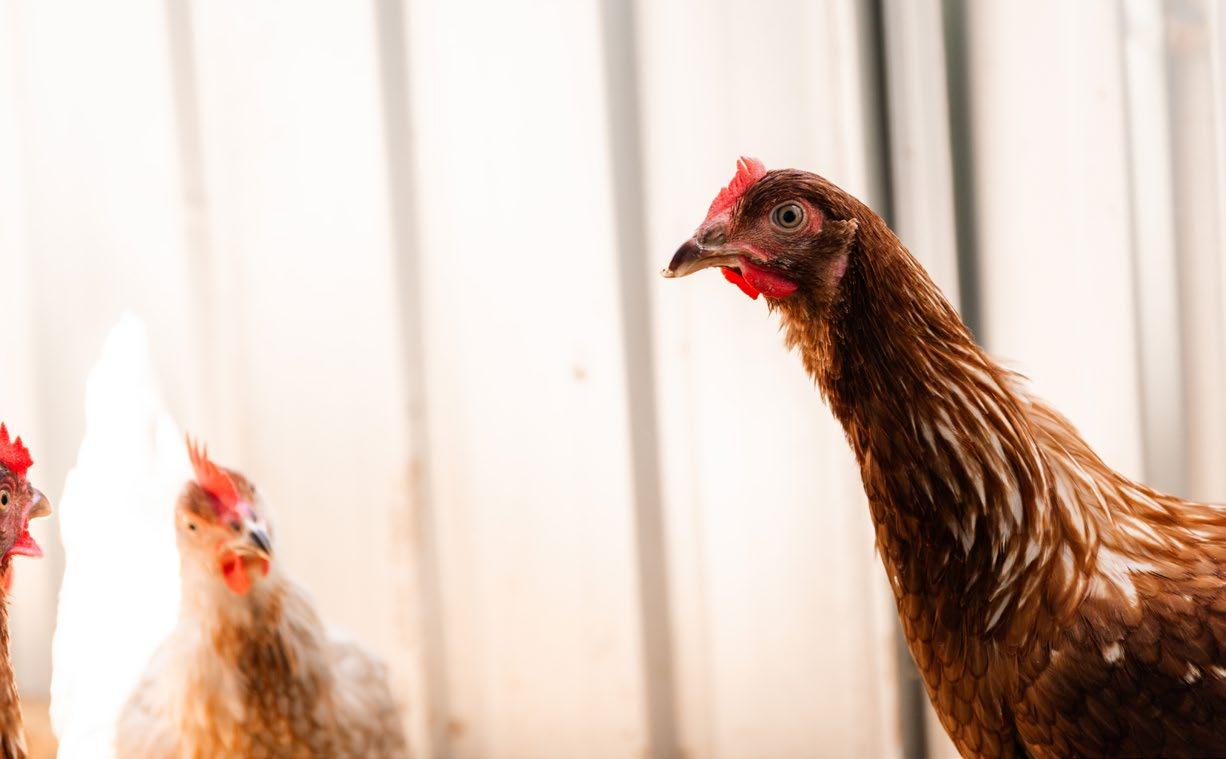

carcase judging and the return of meat in a variety of cuts to school for consumption, providing a true paddock-to-plate experience.
Stage 6 Agriculture students (Years 11 and 12) are using the SMGS beef cattle to learn about the diverse range of environmental interactions within systems, sustainability, animal welfare and beef cattle management operations. Stage 4 Agriculture Technology (Year 7) students are utilising the SMGS cattle and the development of horticultural skills to design the ‘ultimate burger’, learning about paddock-to-plate systems and the environmental and health benefits of locally produced food. Year 7 students have also been busily planting and germinating a variety of salad, herb and vegetable seeds in the glasshouse for use in their Hamburger projects. Year 8 are growing various plants in the glasshouse to transplant to their hanging herb pots as part of the Materials and Agriculture Technology project. Stage 6 students have been growing radish seeds in the raised gardens for their senior agricultural experiments: Year 11 are investigating the effect of various fertiliser treatments on growing success and yield, and Year 12 have been investigating the effect of planting depth on germination success and plant development.
AMBER oAKMAN
Agriculture Elective Teacher [E] amber.oakman@smgs.nsw.edu.au
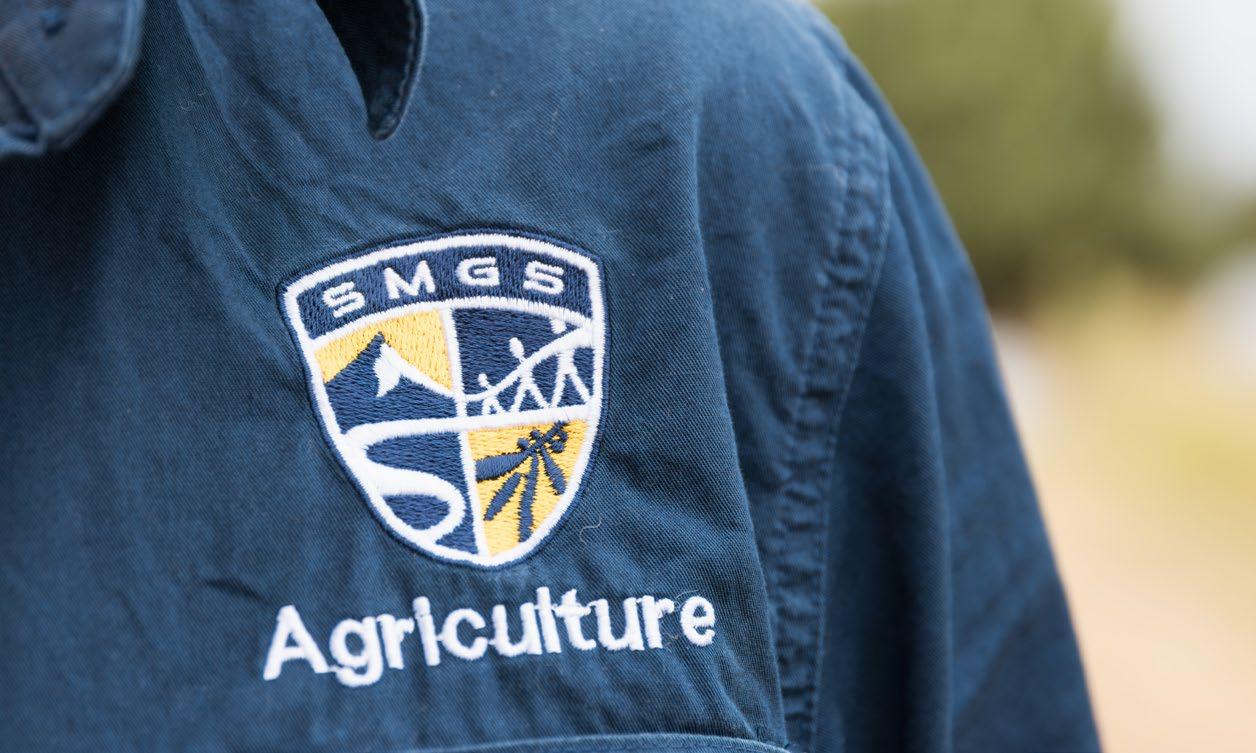
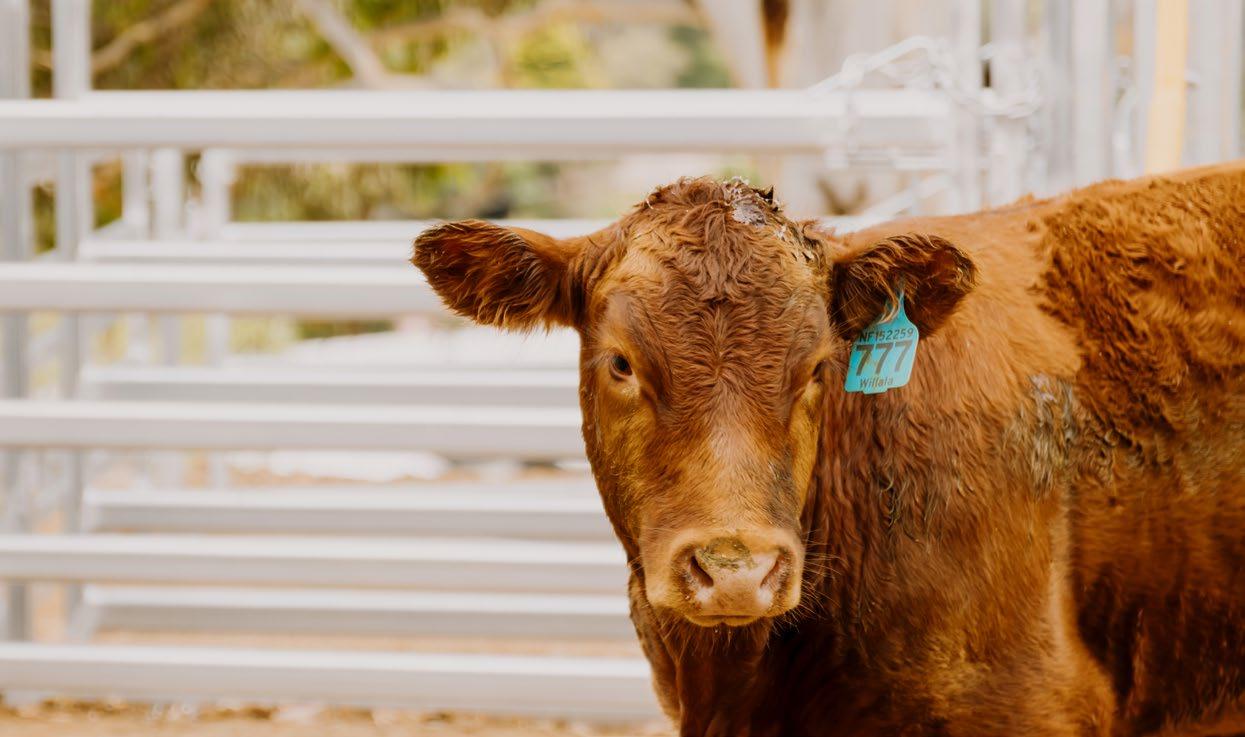
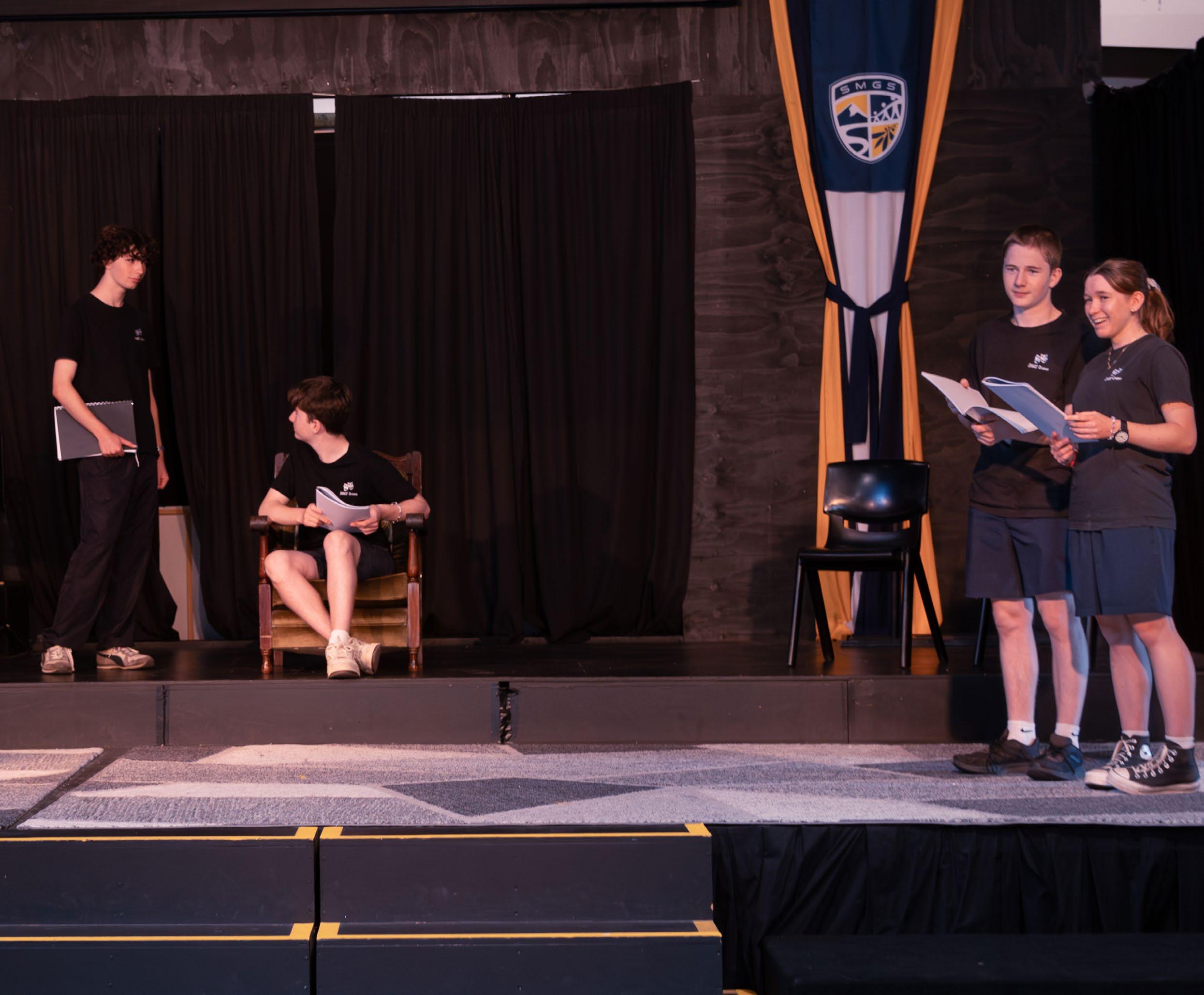
The Year 11 and 12 Drama classes recently travelled to Sydney to see Onstage, a showcase of outstanding HSC Drama Group and Individual Presentations from 2023. This included Video Drama, Rehearsed Readings of Scripts, Individual Performances and Designs. Watching these performances immensely inspired both year groups. There was a wide variety of styles of theatre, self-devised content and endless creativity, provoking analytical and topical conversations amongst the students. It was an insight into the standard of HSC Drama across the state and how truly engaging it can be for all audiences. Students returned to school motivated to work to their full potential in the coming year.
Co-curricular classes have now started, with an abundance of arts activities to dive into: Upbeat Ukulele and K–2 Band in the Junior School, and Glee Club, Senior Band, DEVO Band, Drama Club and Dance Club all on offer in our Middle and
Senior Schools. A vast number of students are also already enrolled in extra music lessons out of school hours, but held on the school grounds.
We have our first Cre8ive Sessions coming up for this year. Stay tuned for the announcement of students’ performances on Wednesday 18 May, from 6.00 pm.
Years 7–12 students have begun rehearsals for our 2024 school production, Trials. The Story of Joan of Arc (and Beth). They are looking forward to working collaboratively to bring this script to life for parents and friends in May.
CATHERINE BATSoN Head of Faculty—Creative & Performing Arts [E] catherine.batson@smgs.nsw.edu.au
Date: Thursday 7 March 2024
Time: 7.00 – 8.30 am
Location: Rydges Horizons, Jindabyne
Cost: $45 pp (includes a hot breakfast)

Snowy Mountains Grammar presents

Ben Barber Neigbours star, NIDA graduate.

Neighbours Star and NIDA graduate Ben Barber will be coming the Snowy Mountains to have a fun filled day of theatre sports, developing characters through Improv games and working towards a rehearsed group presentation by the end of the day.
• Learn to think on the spot
• Learn comedy and character building
• Develop acting skills
• Devise your own theatre
• Work with like minded people
Dates: 16th March
Time: 10.00am -3.30pm
Venue: SMGS, 6339 Kosciuszko Road, Jindabyne NSW
Cost: $100
Age: 10 +
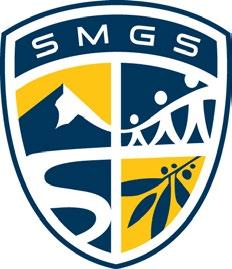
For bookings and enquiries contact catherine.batson@smgs.nsw.edu.au